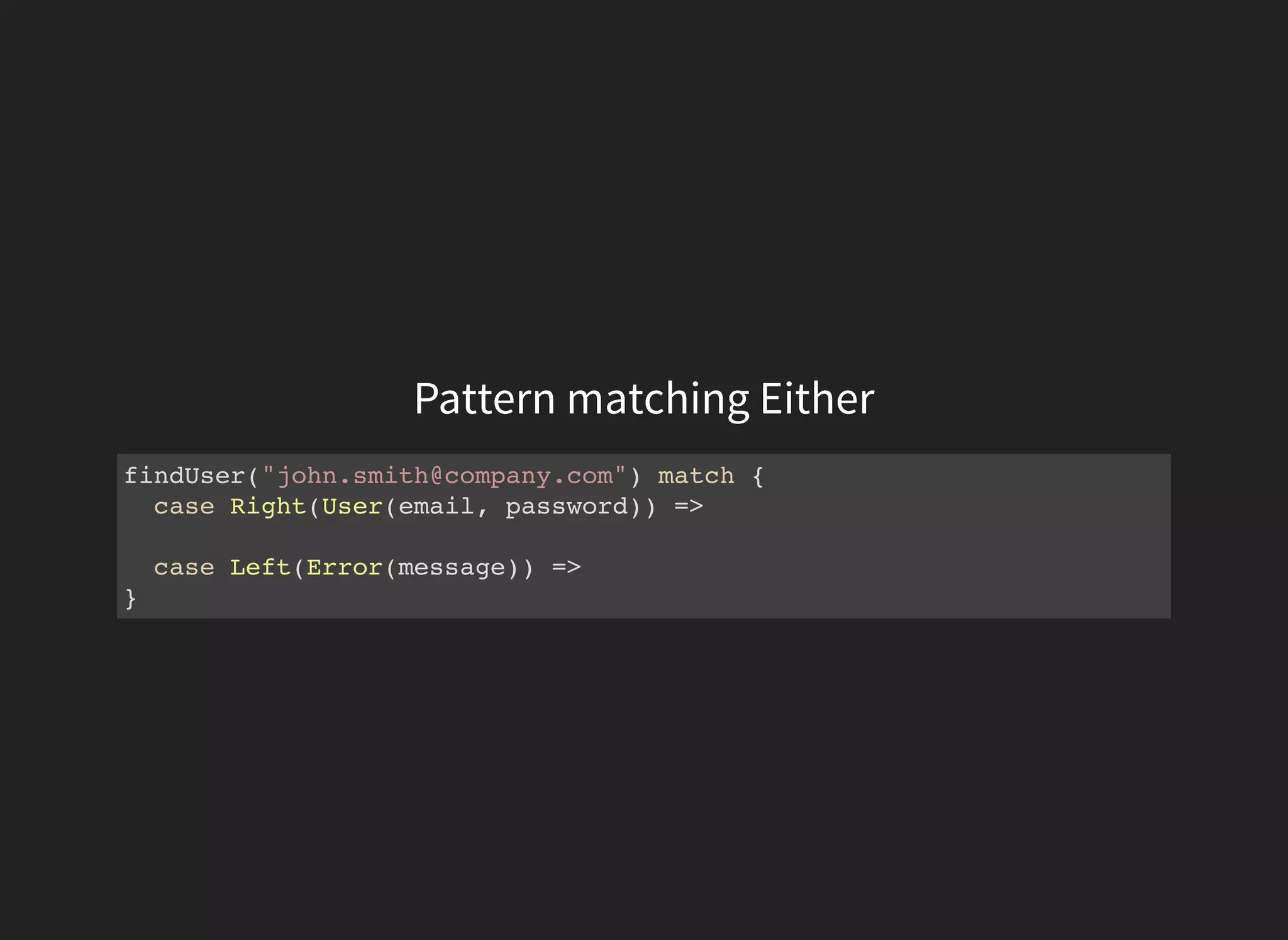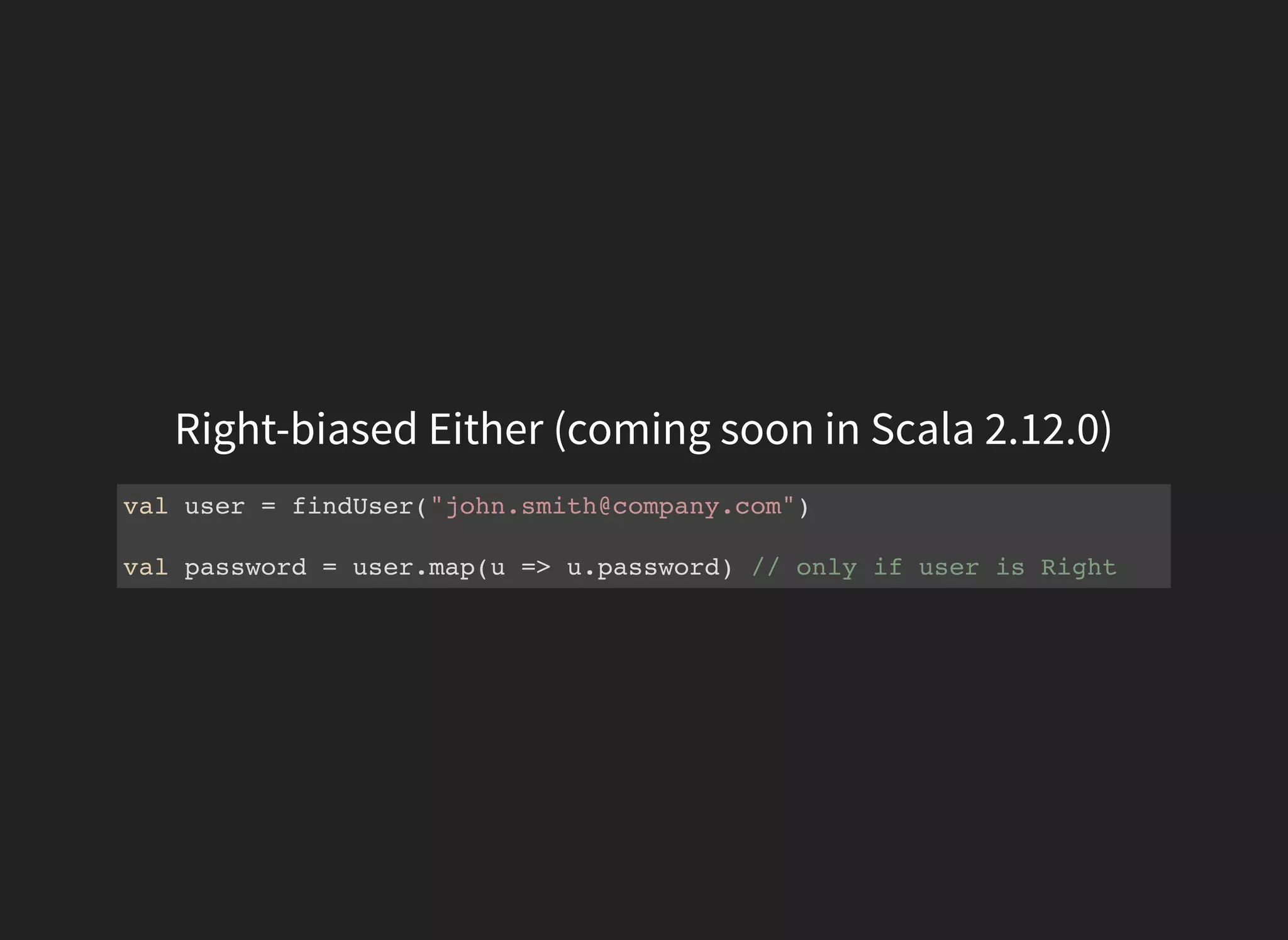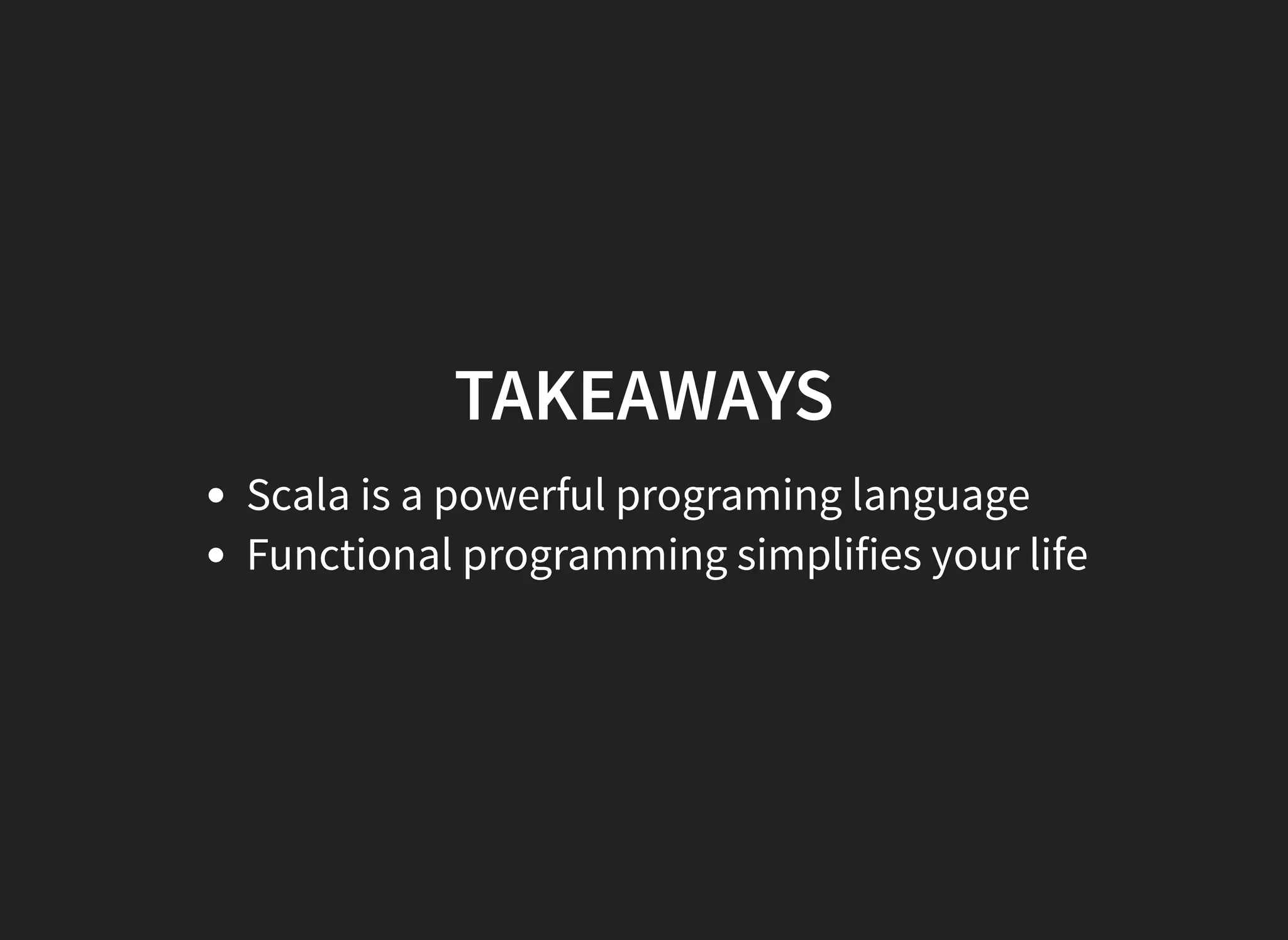This document provides an overview of functional programming concepts in Scala including:
- Scala supports both object-oriented and functional programming paradigms.
- Functional programming avoids side effects and uses immutable data and pure functions.
- Scala supports first-class functions, higher-order functions, and functional data structures like Options and Try.
- Functional patterns like mapping, filtering, and pattern matching help express programs concisely in a referentially transparent style.

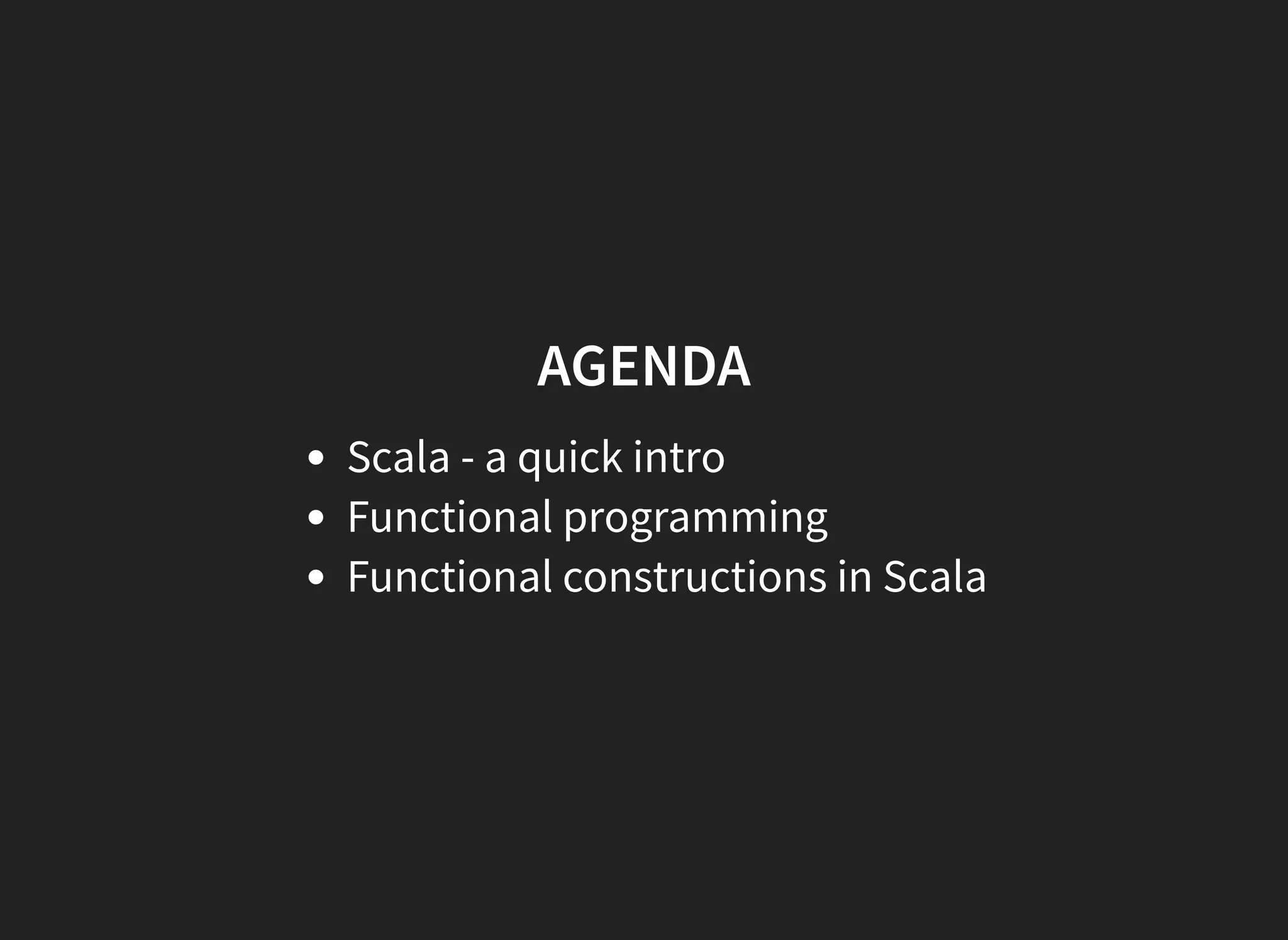
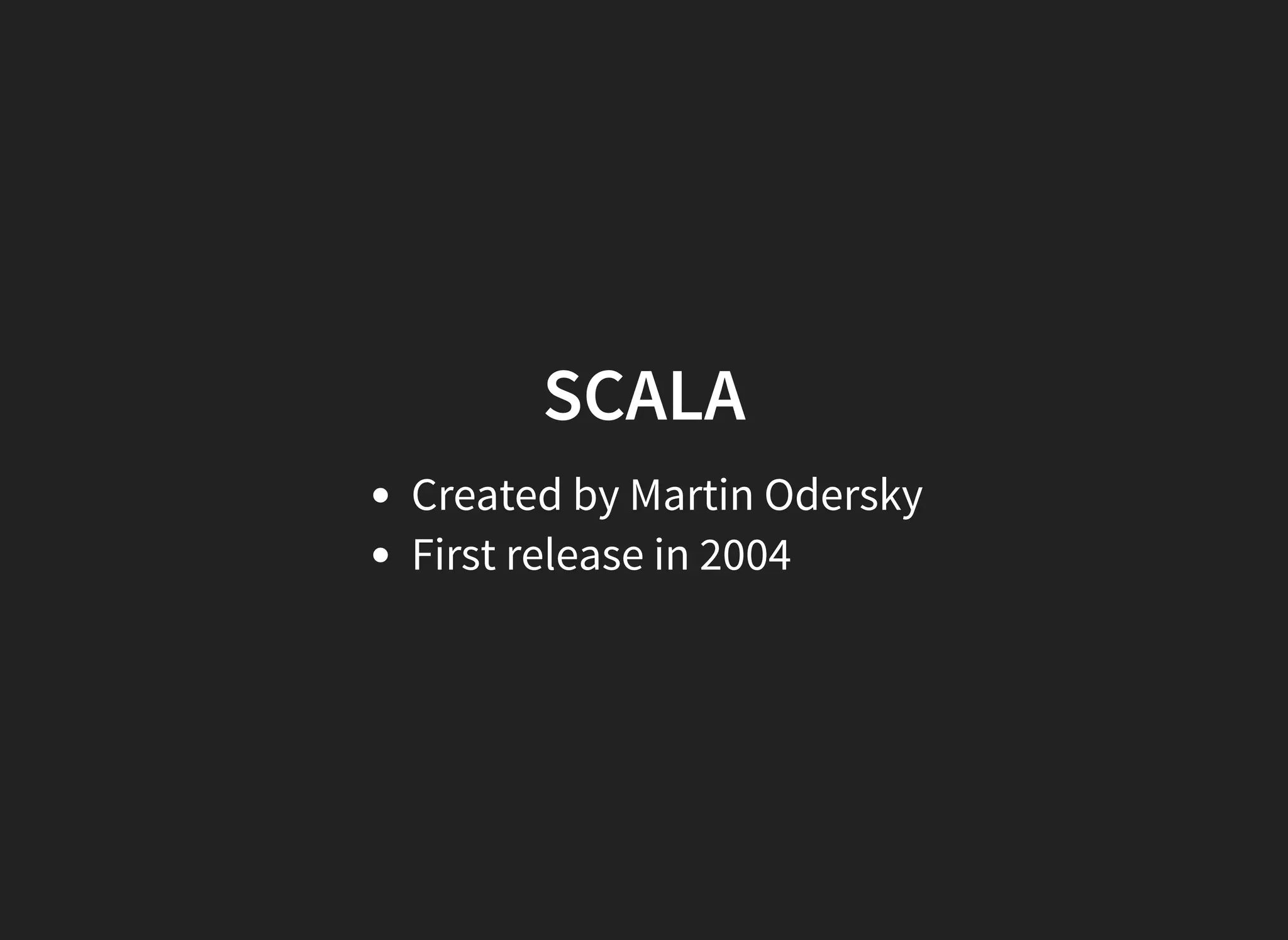
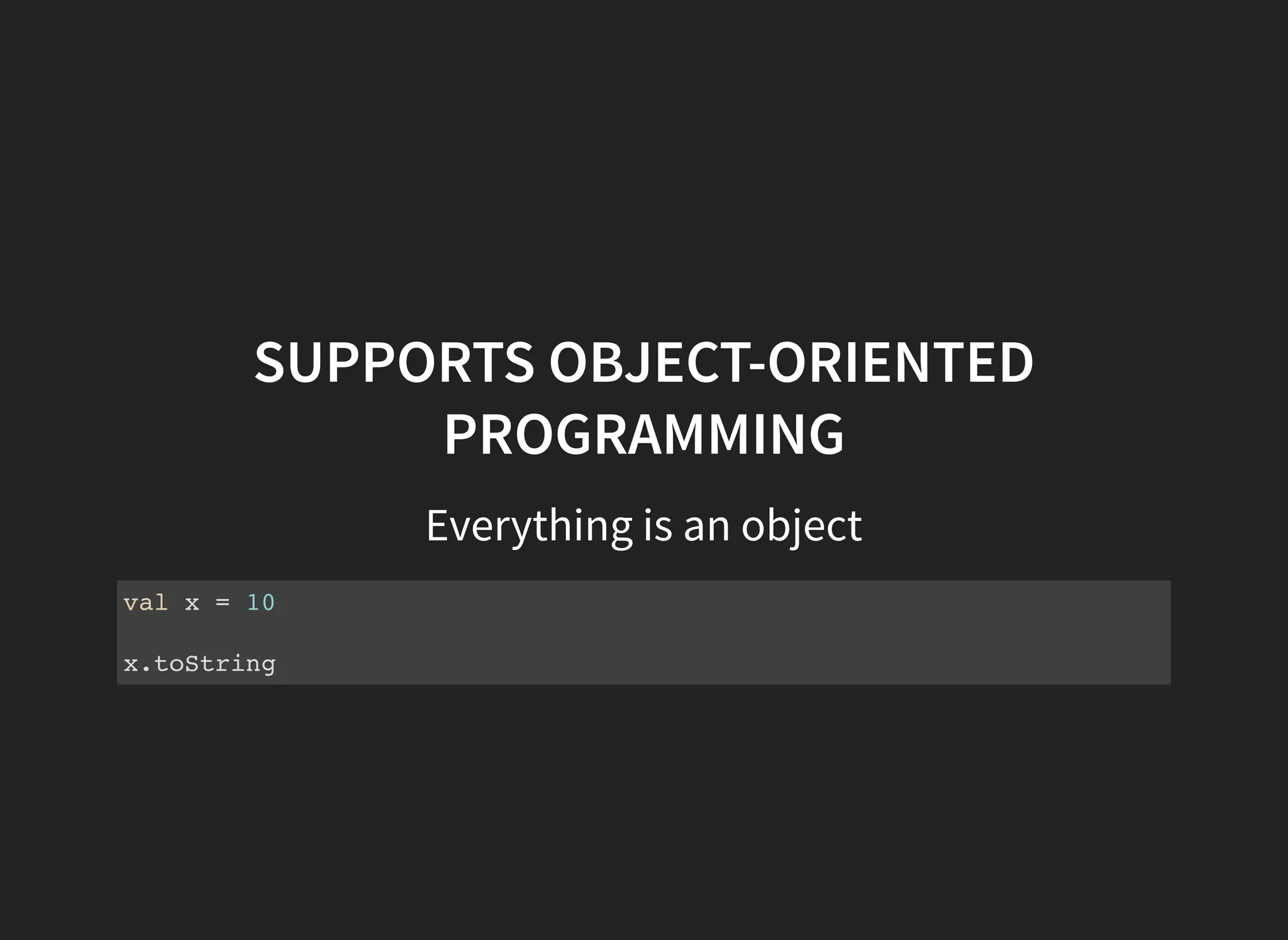
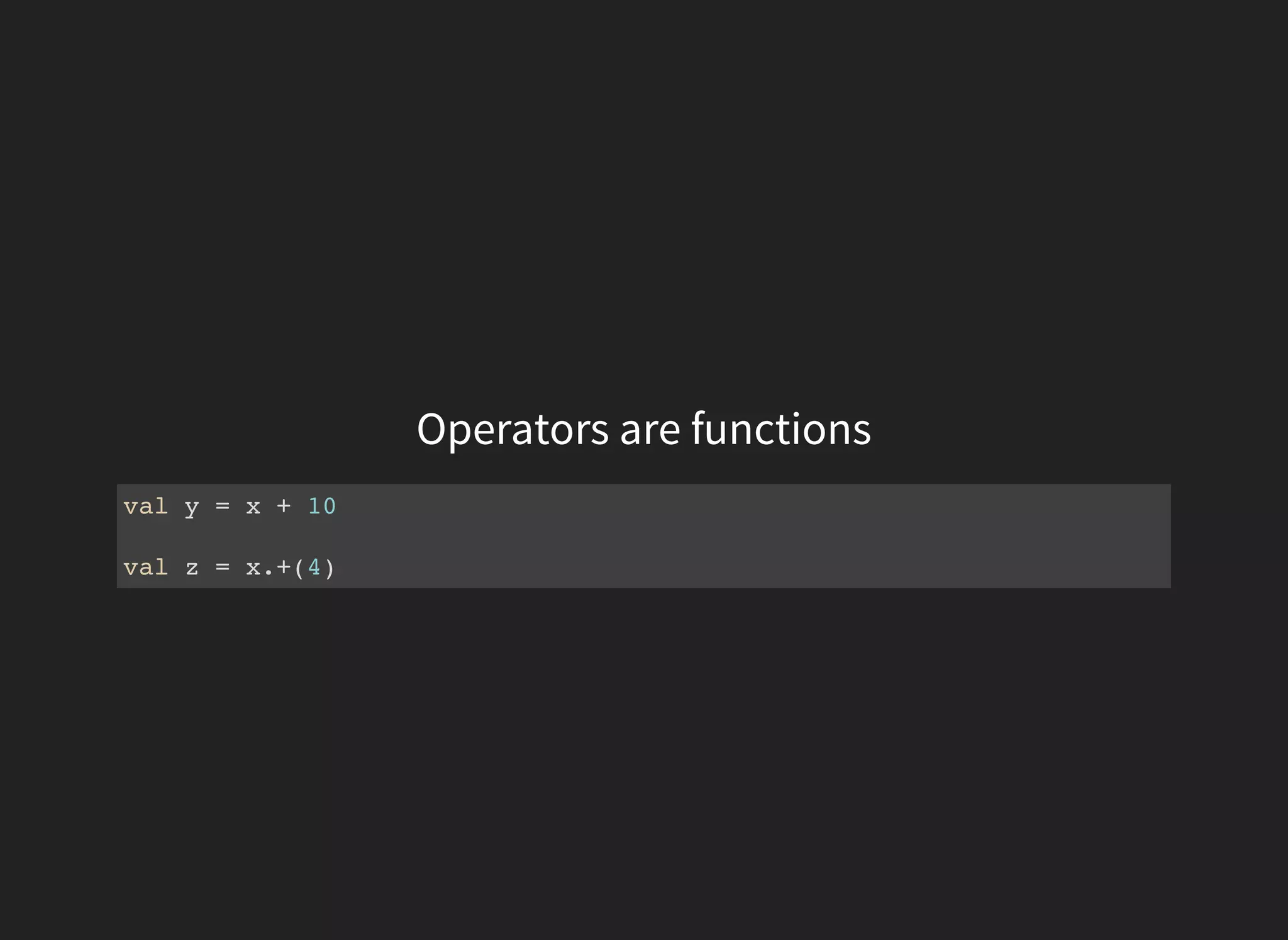
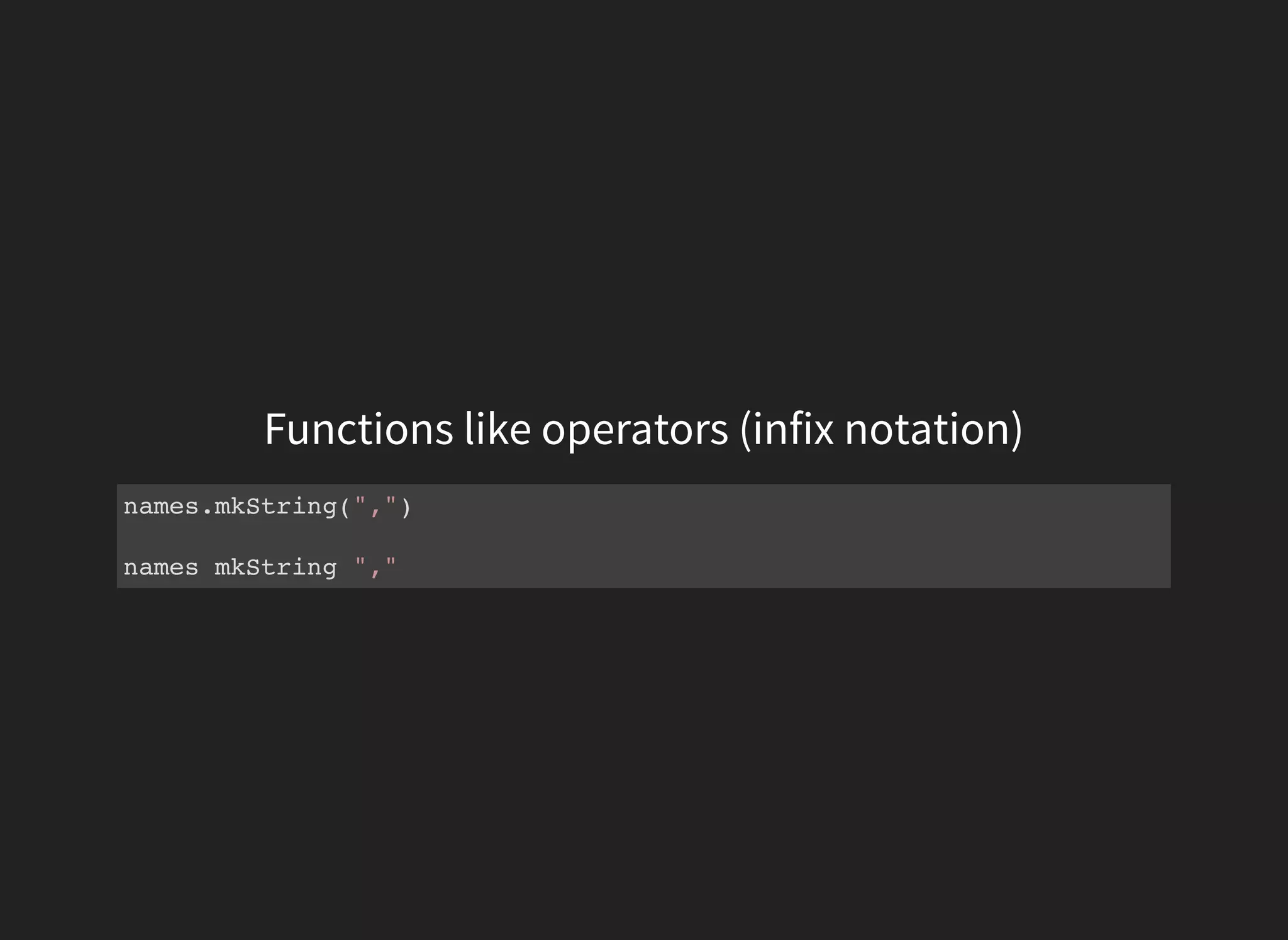
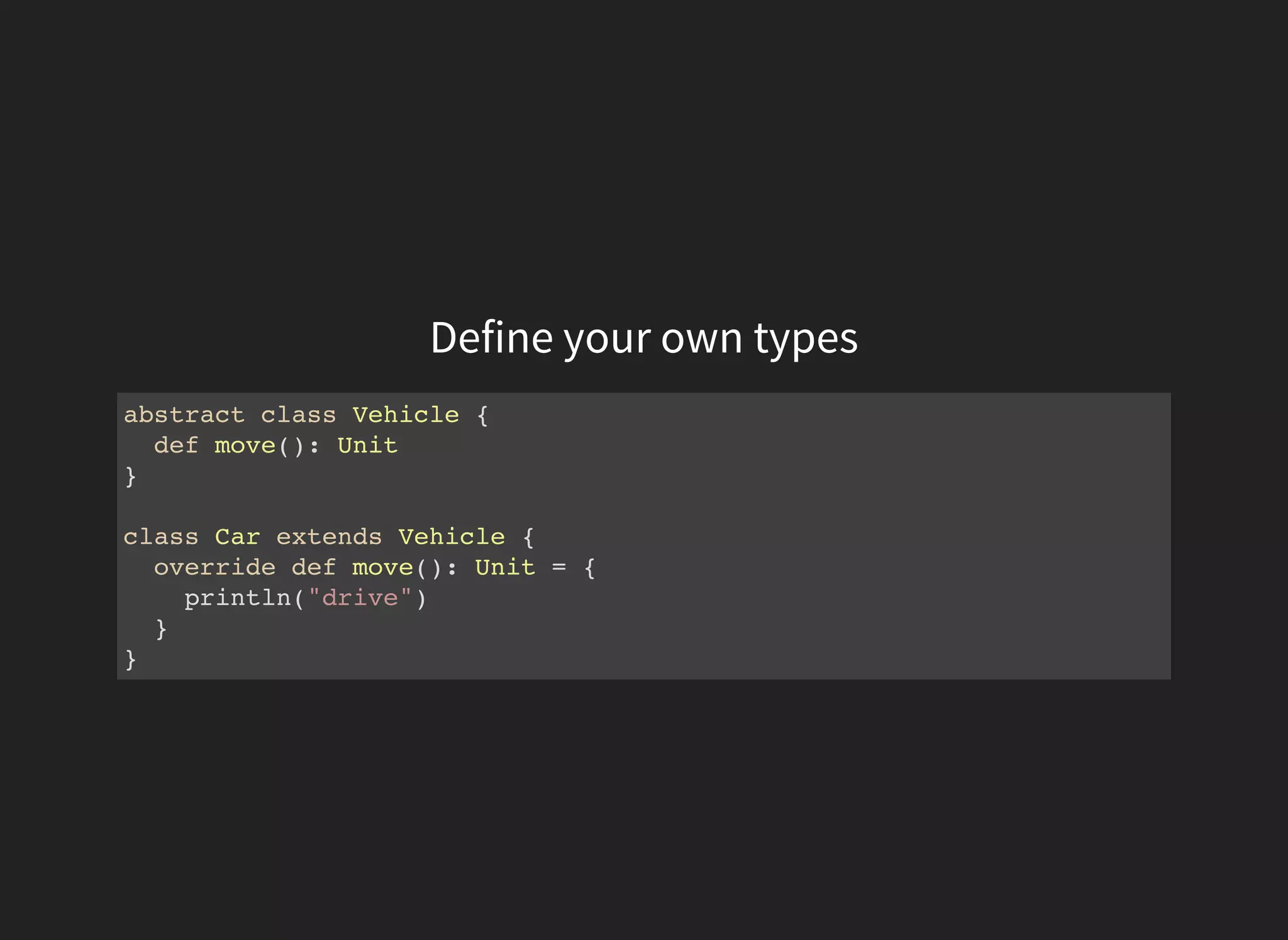
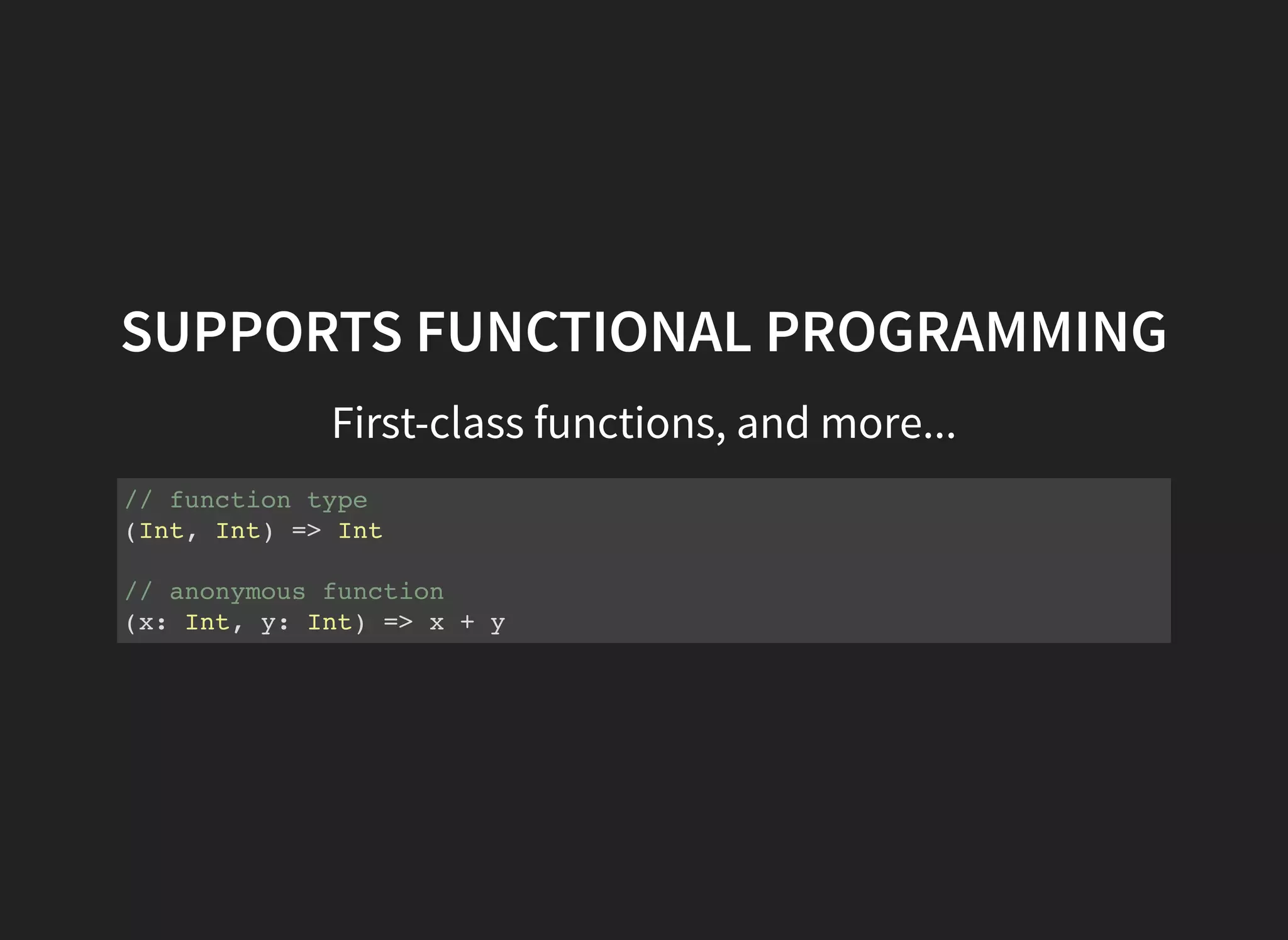
![RUNS ON JVM
Interoperates with Java libraries
import java.time.Instant
val now = Instant.now()
import com.google.common.cache.CacheBuilder
val usersCache: Cache[String, User] = CacheBuilder.newBuilder()
.maximumSize(100).build()](https://image.slidesharecdn.com/functionalscala-161103094444/75/Functional-programming-in-Scala-9-2048.jpg)
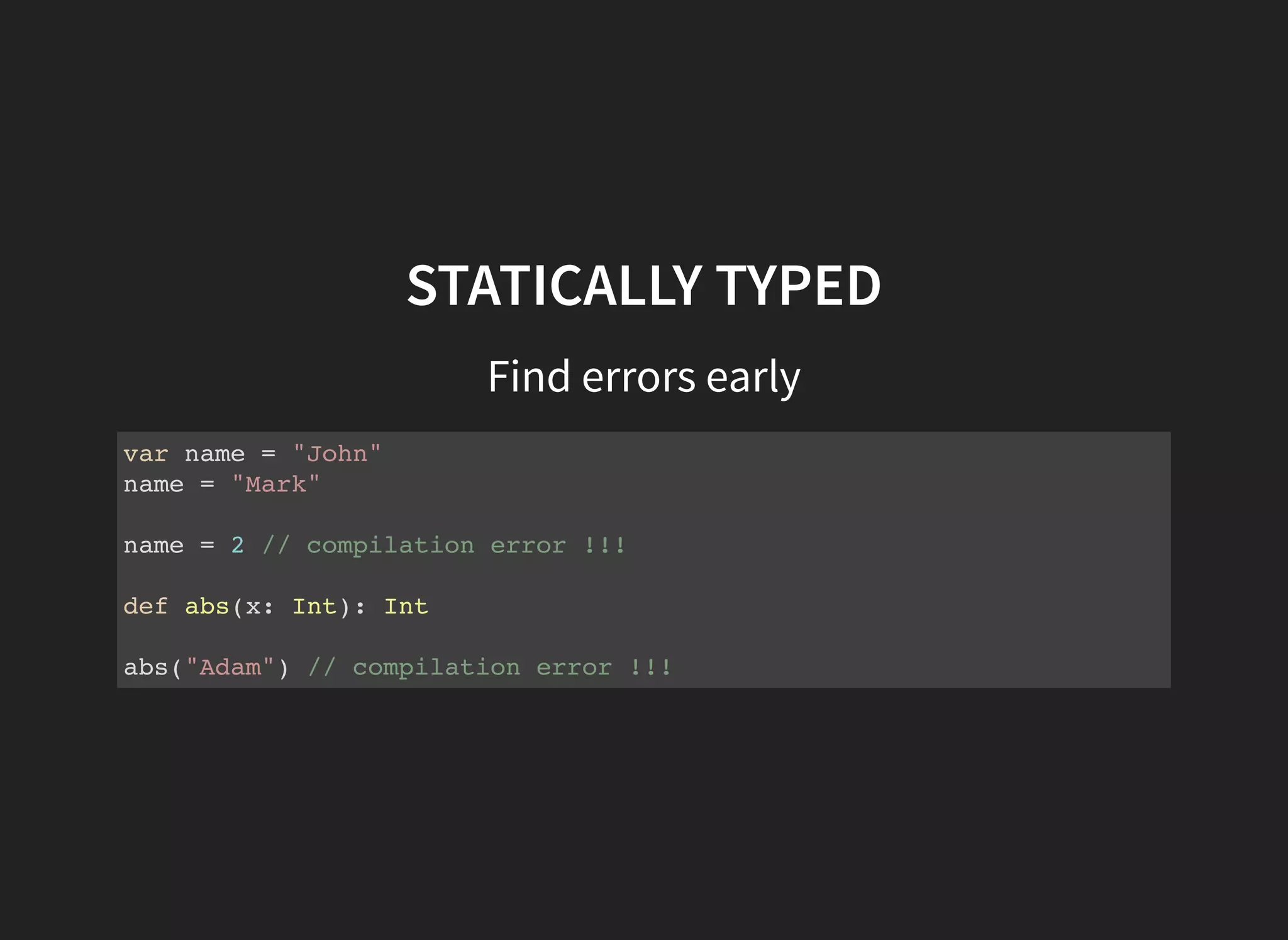
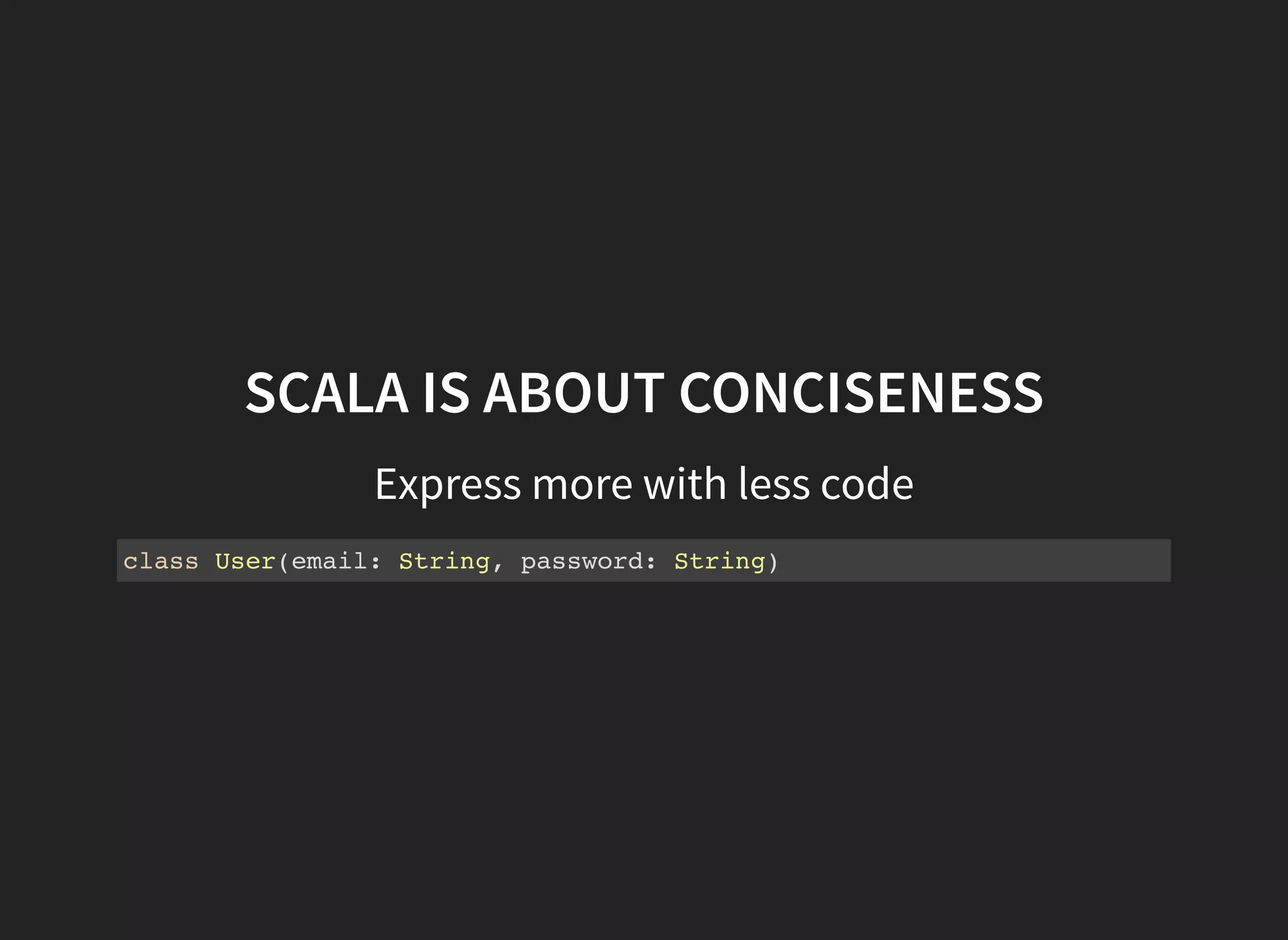
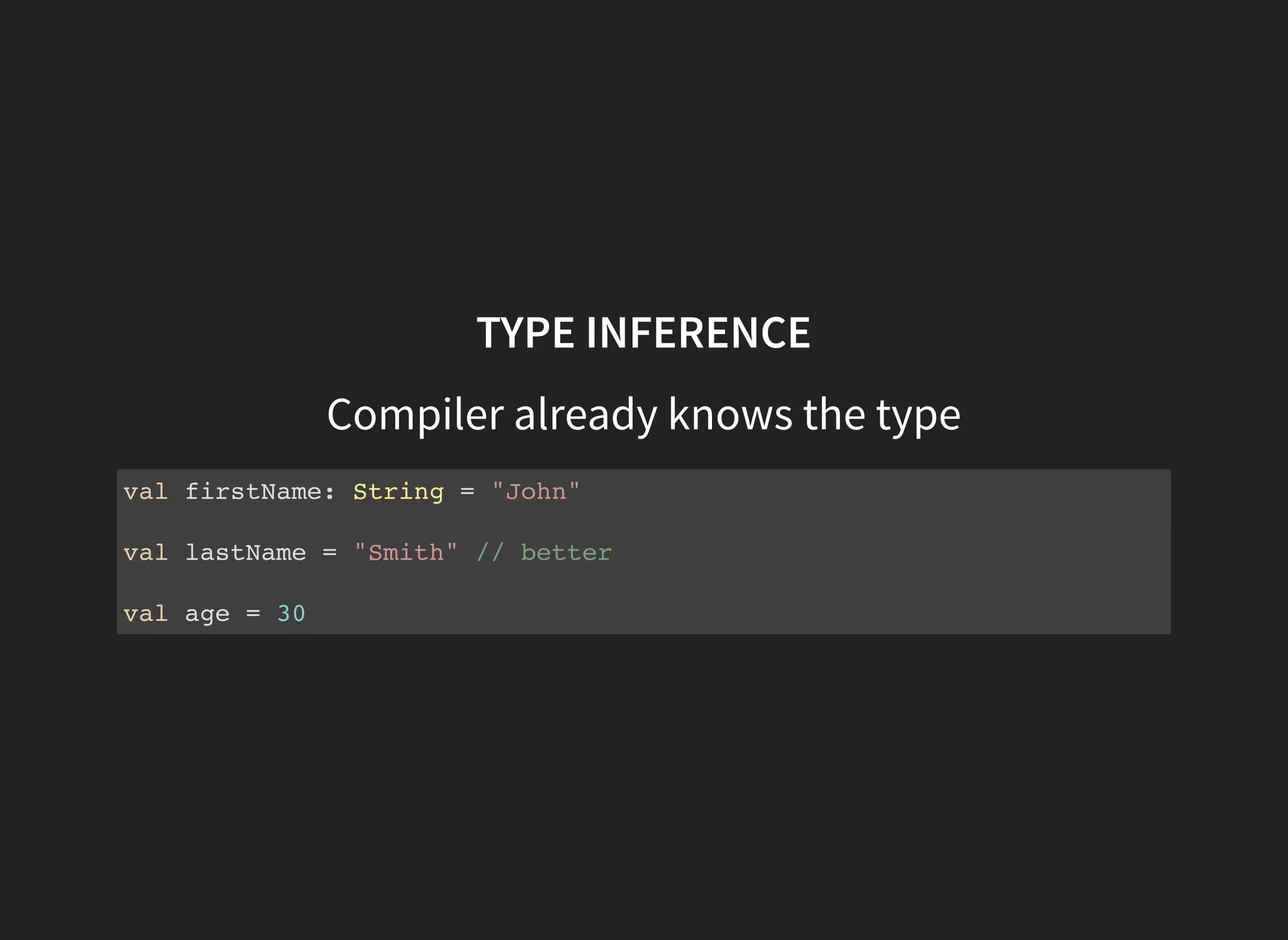
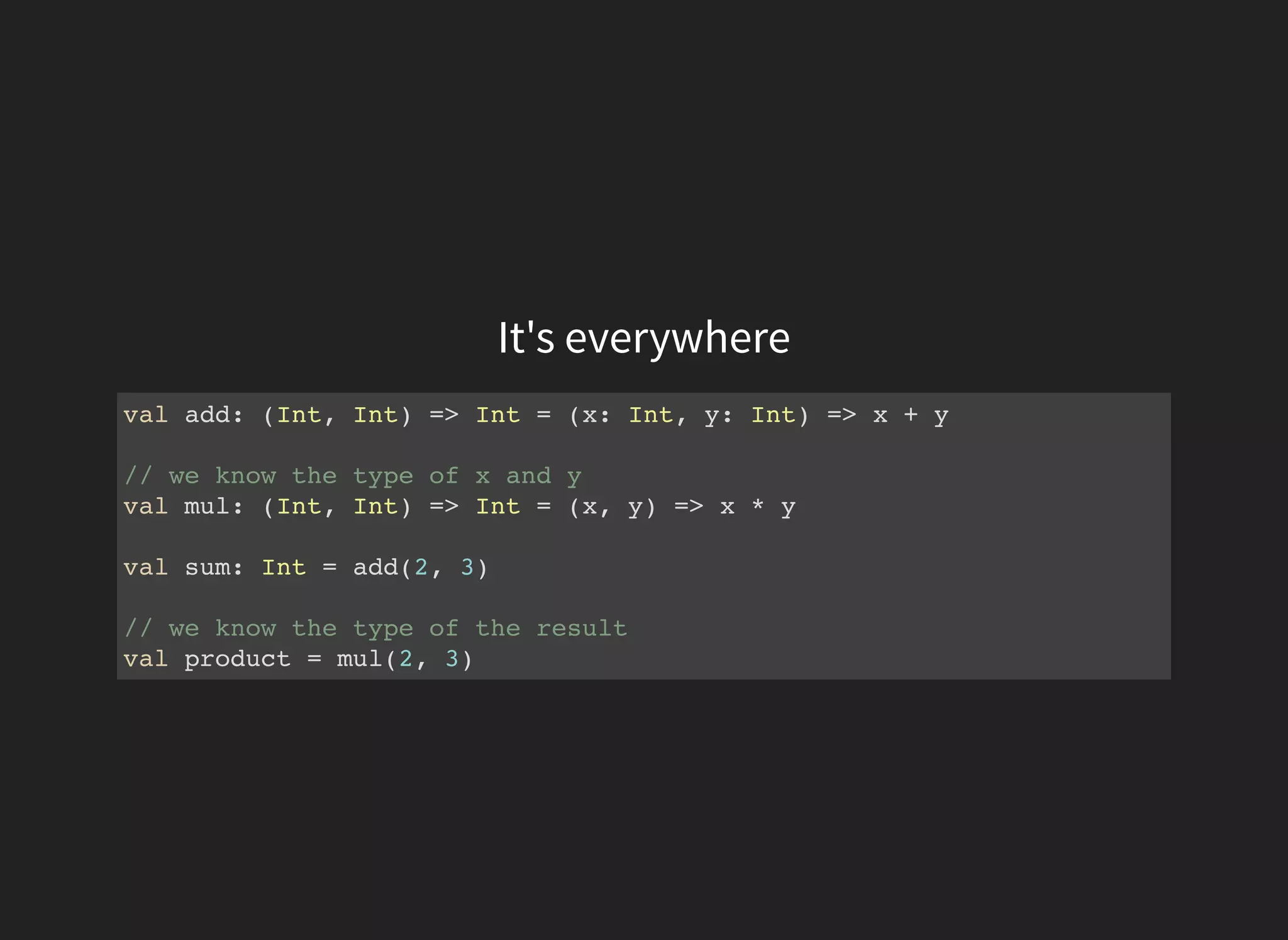
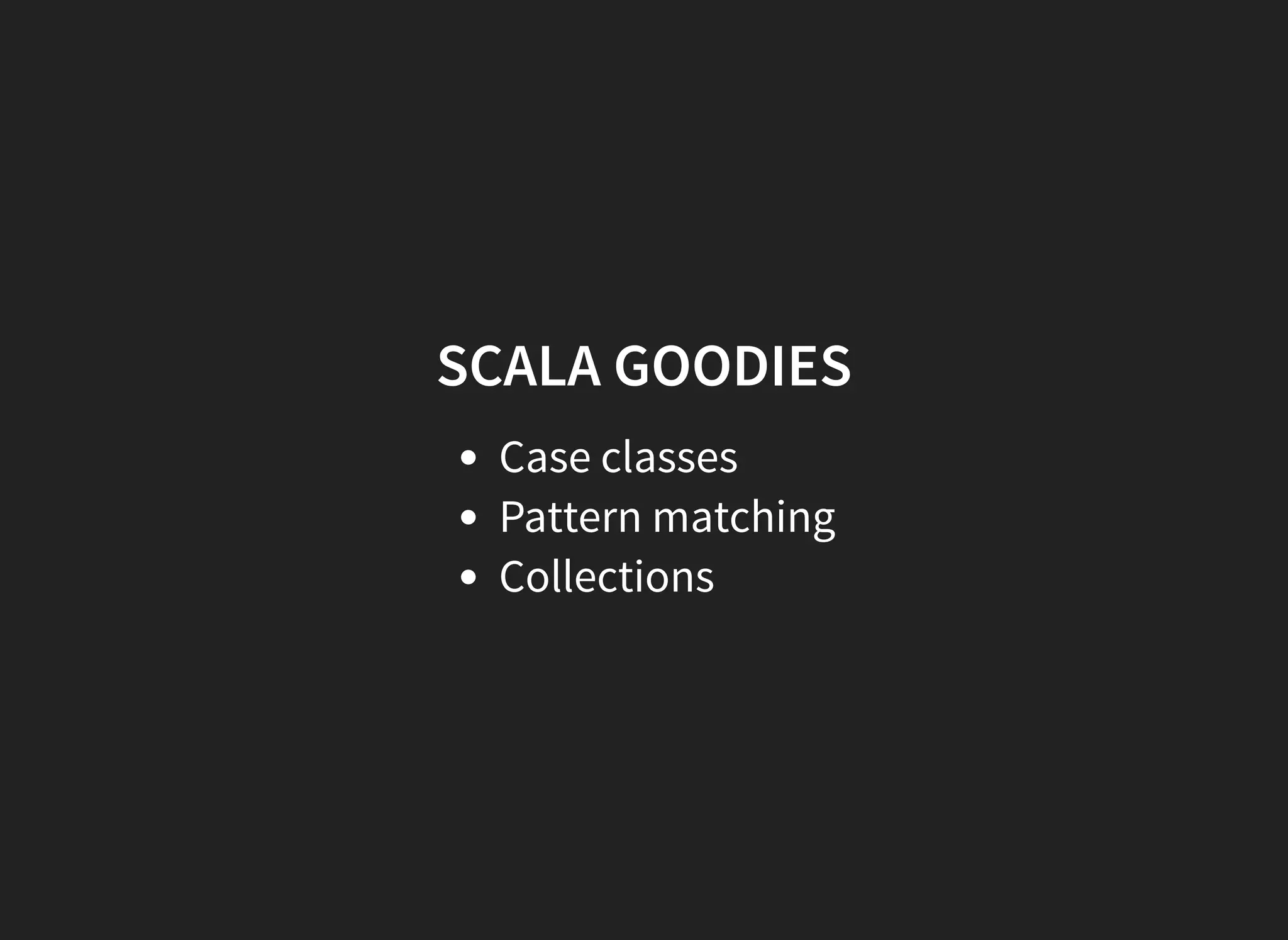
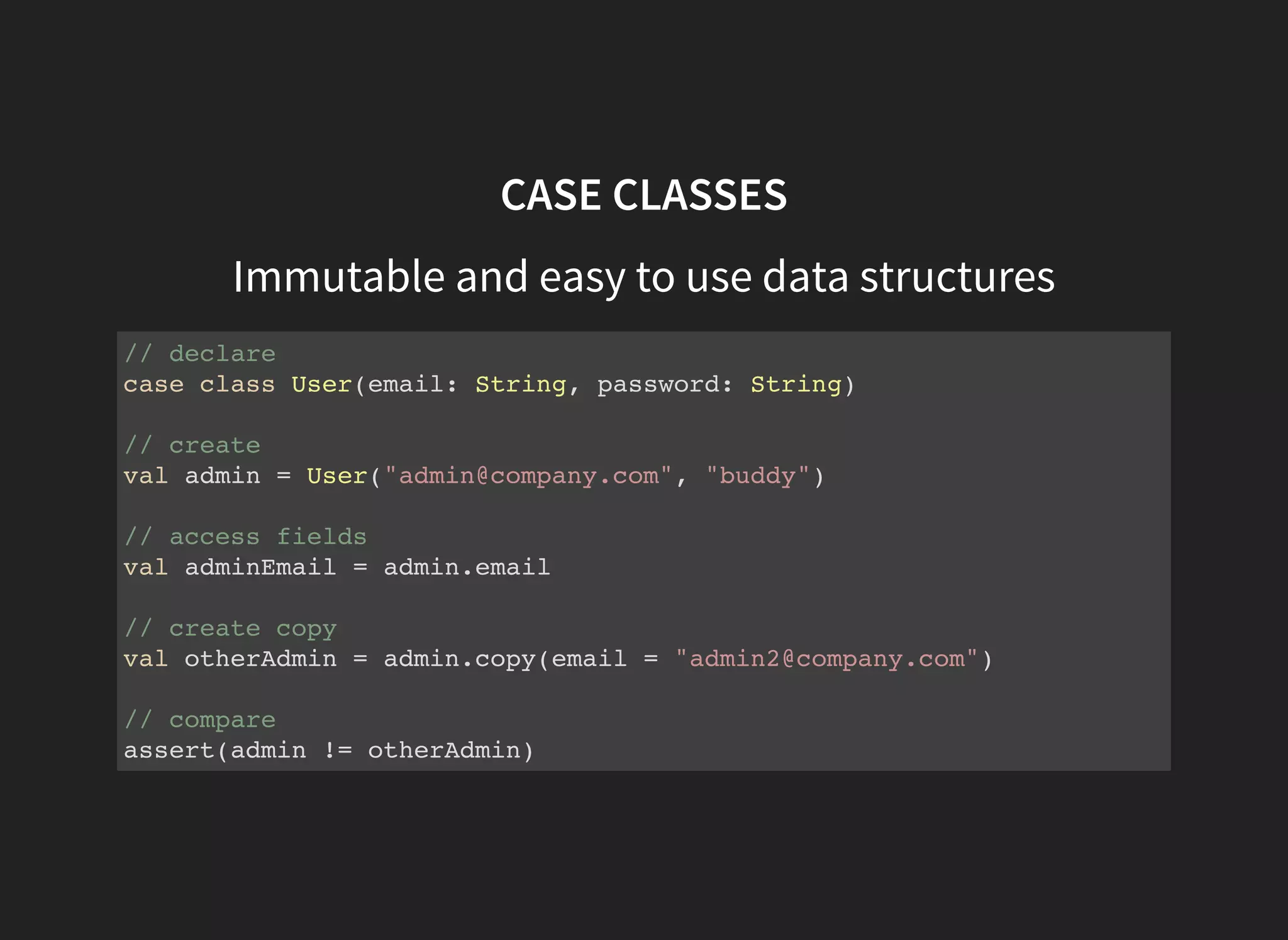
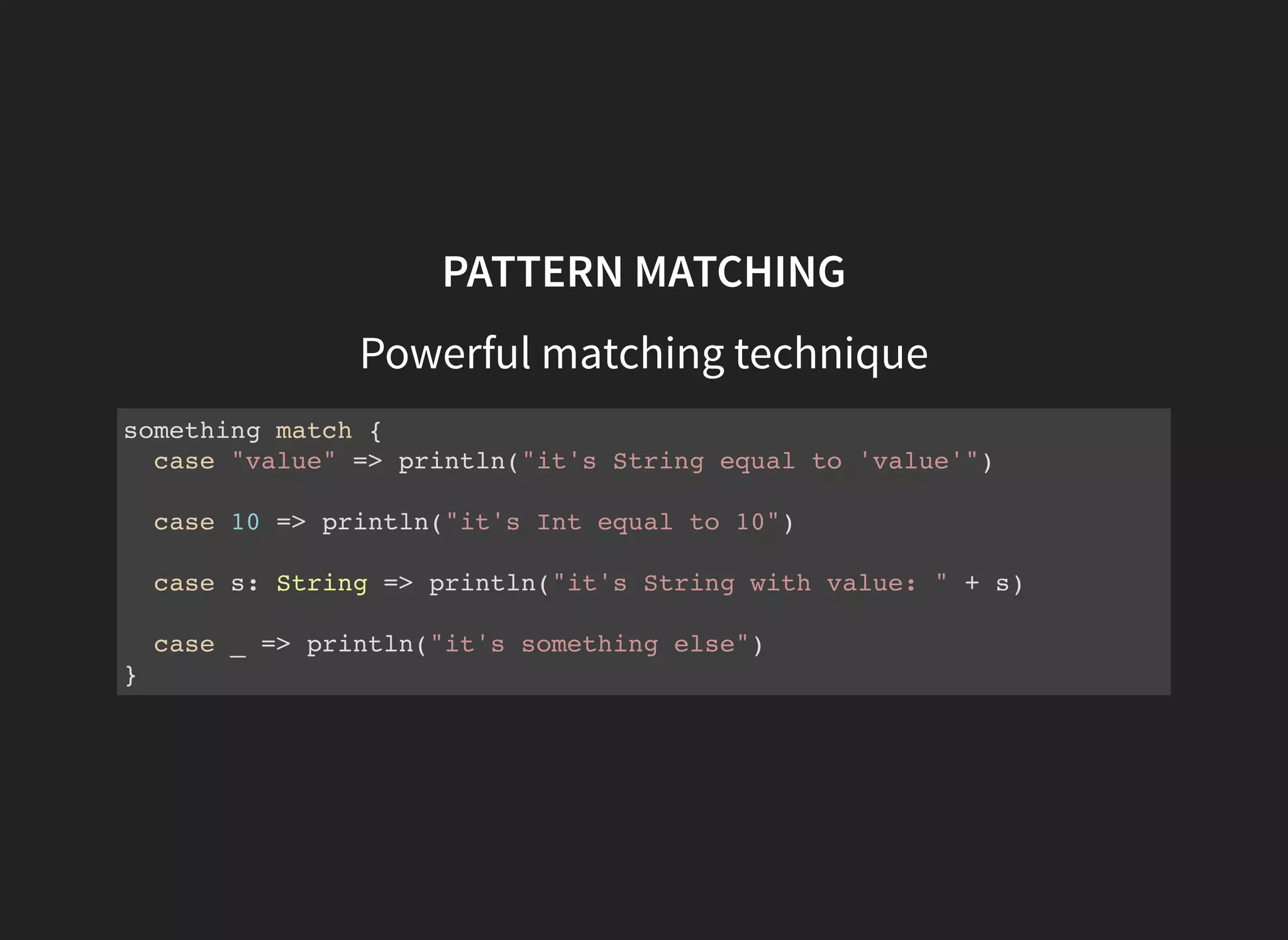
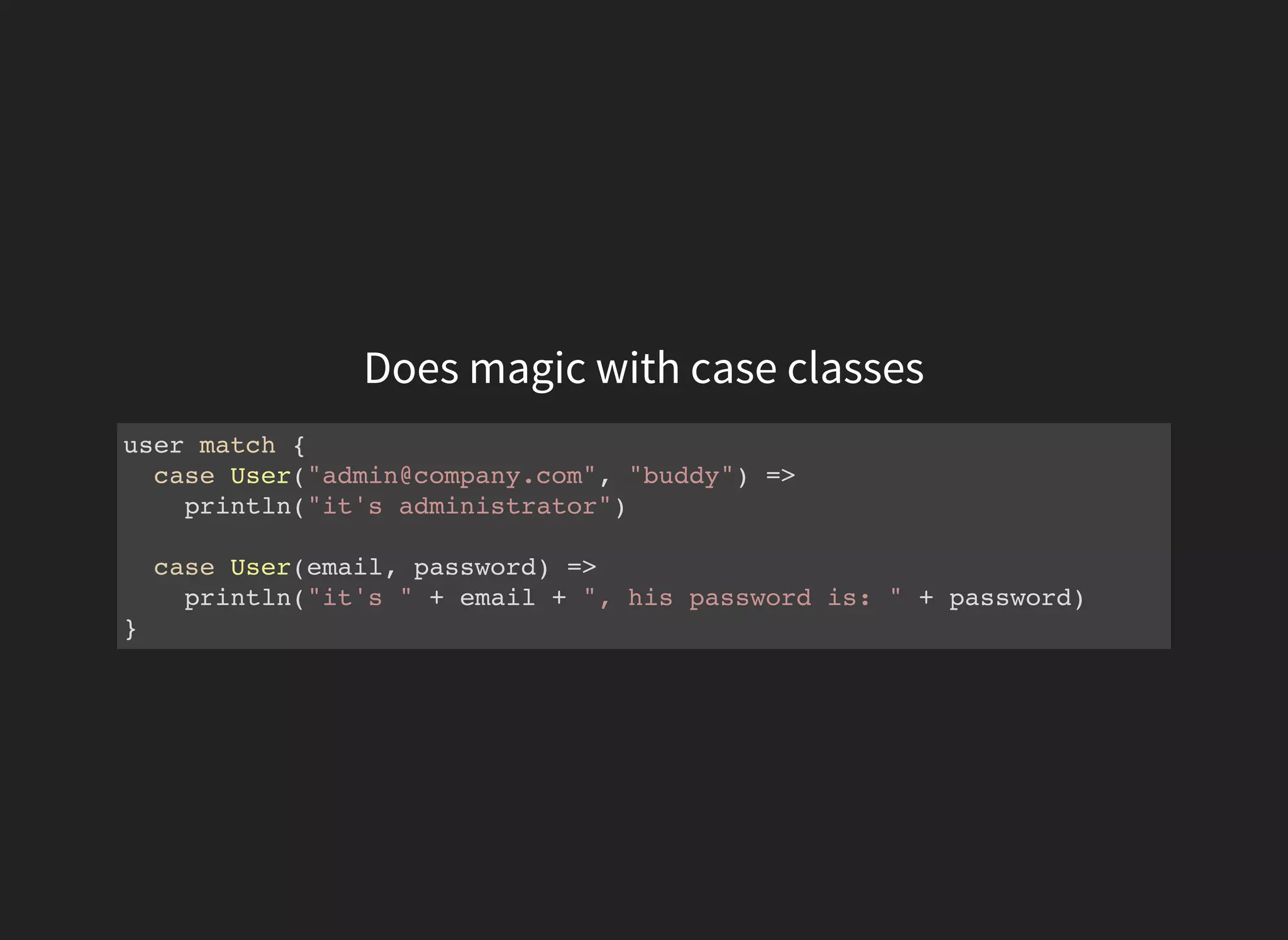
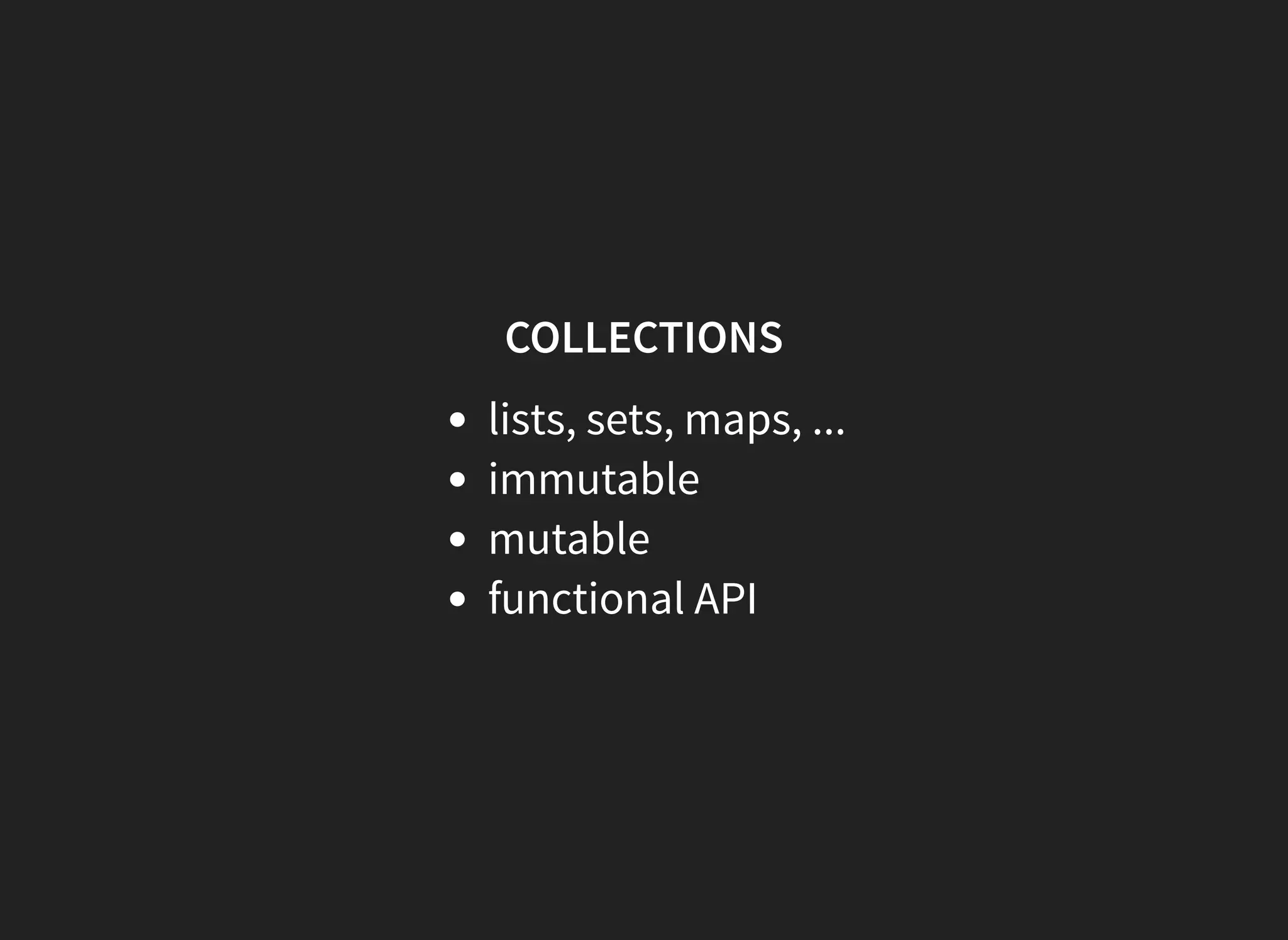
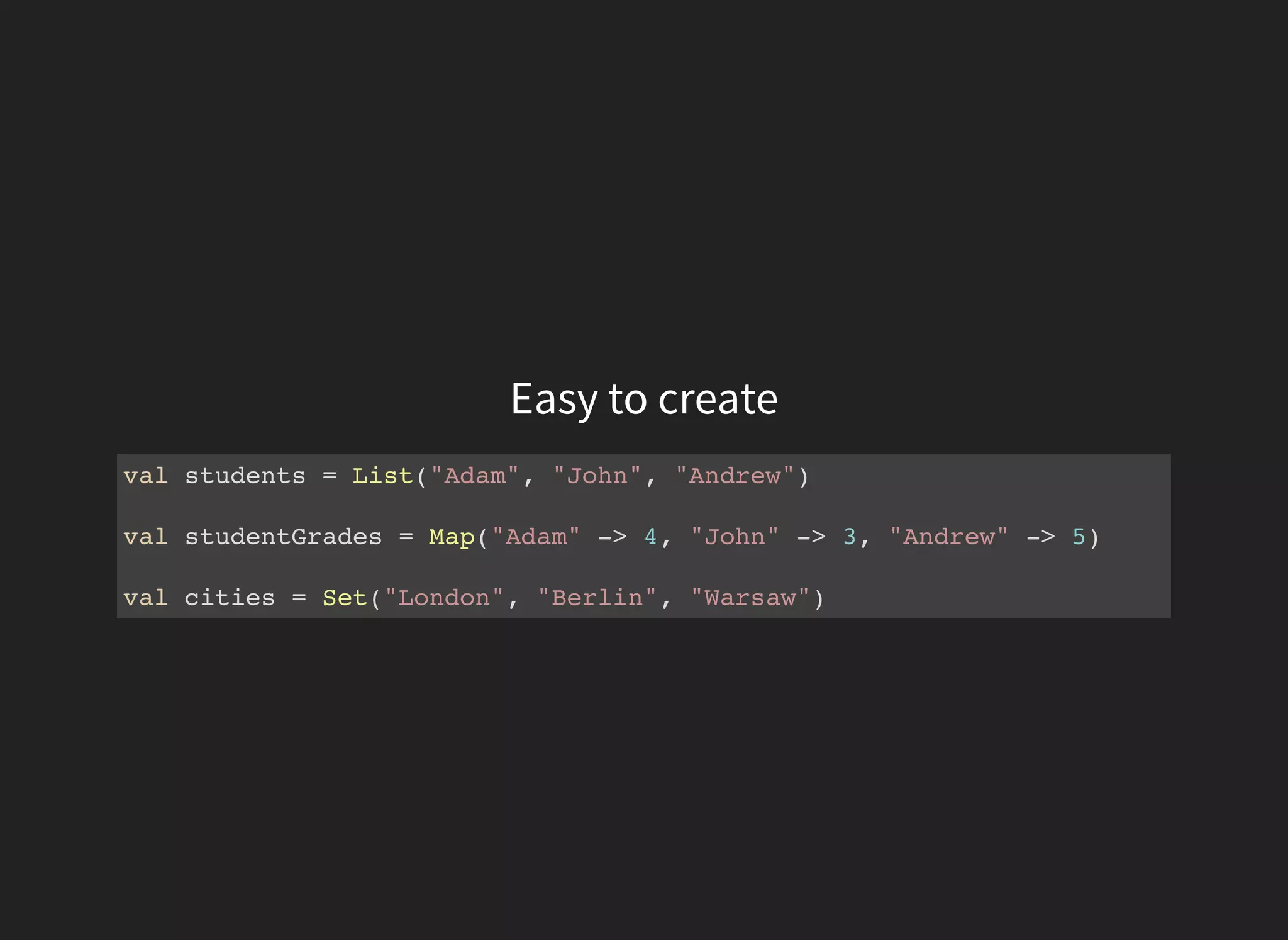
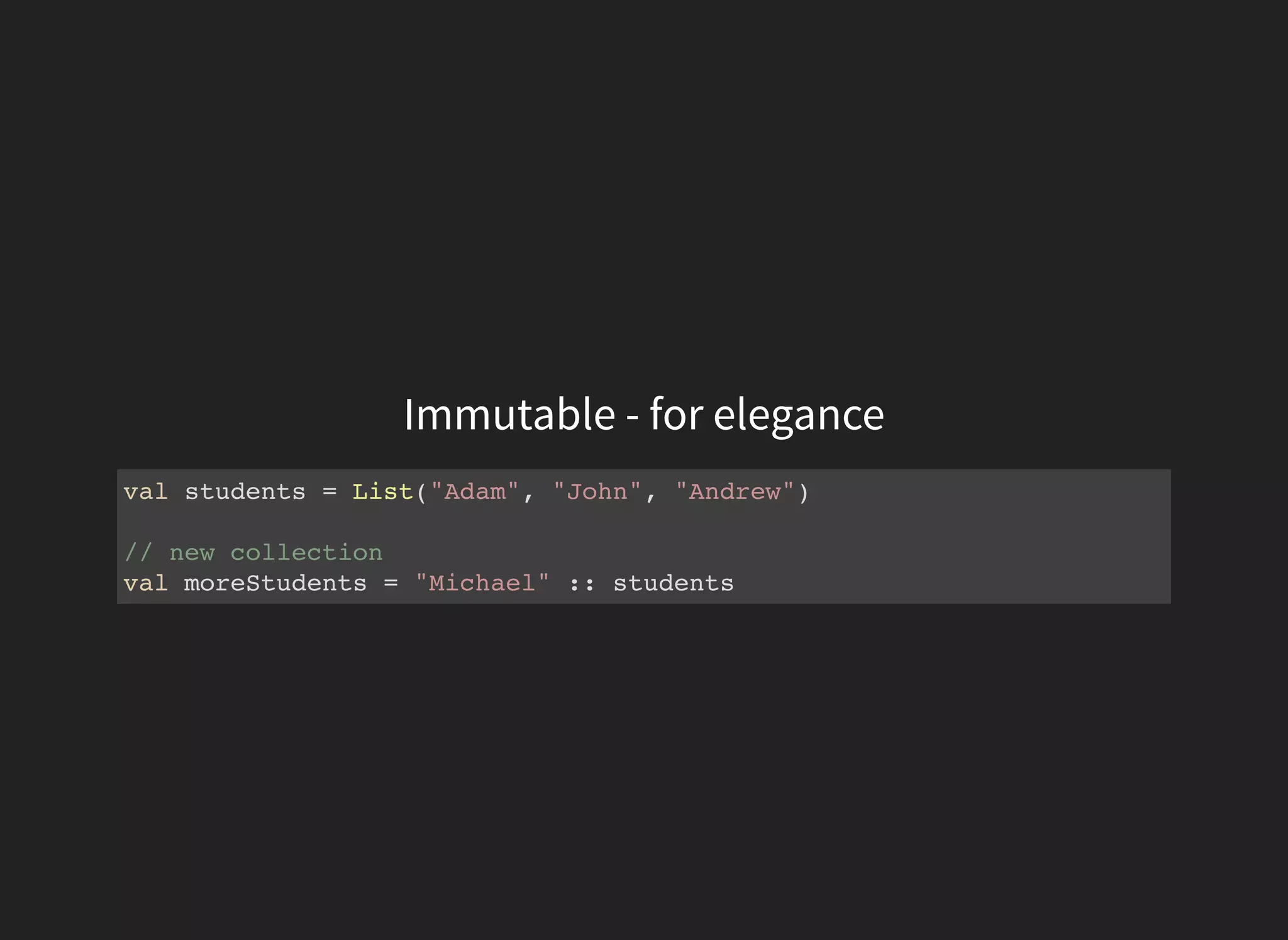
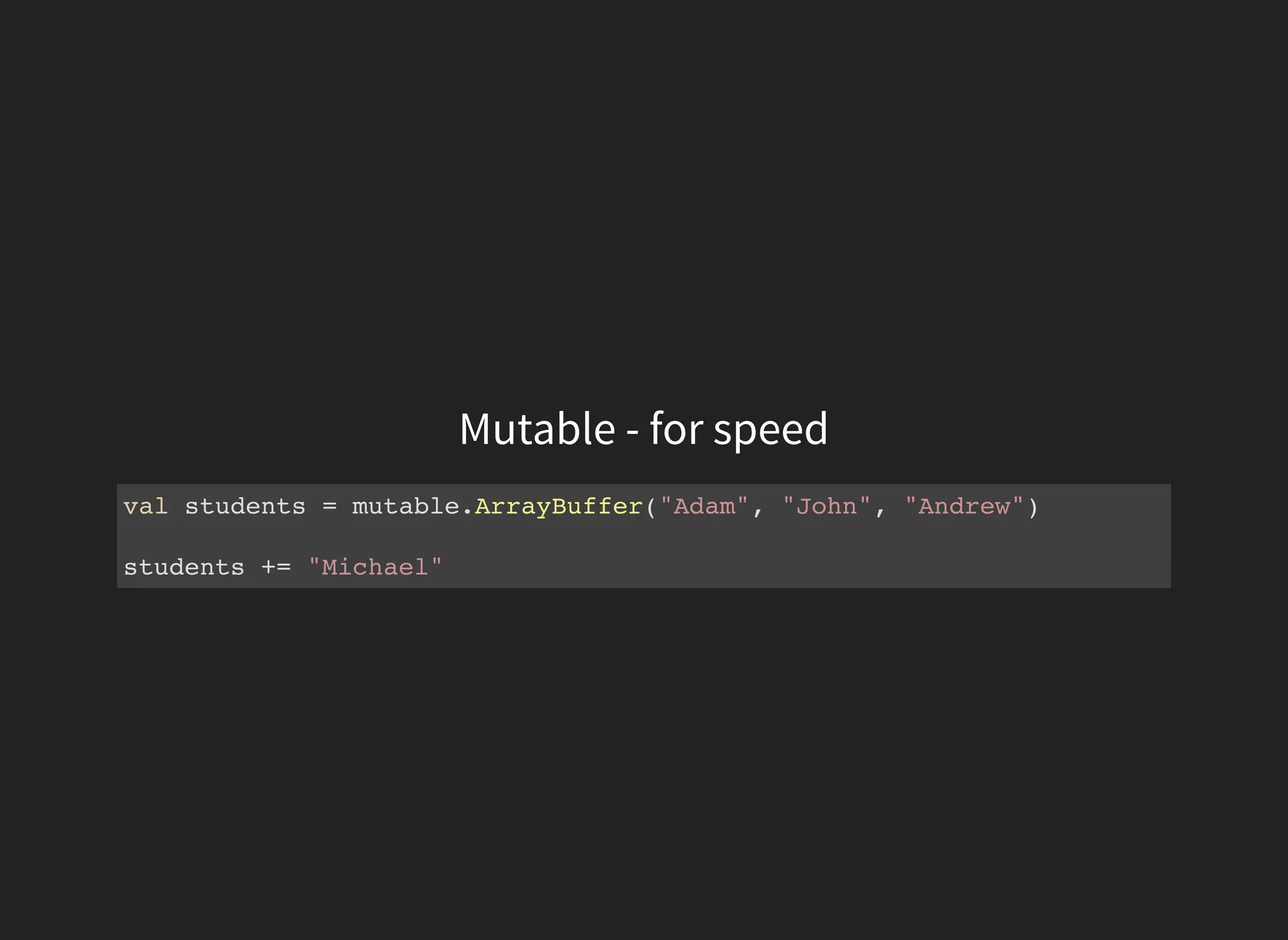
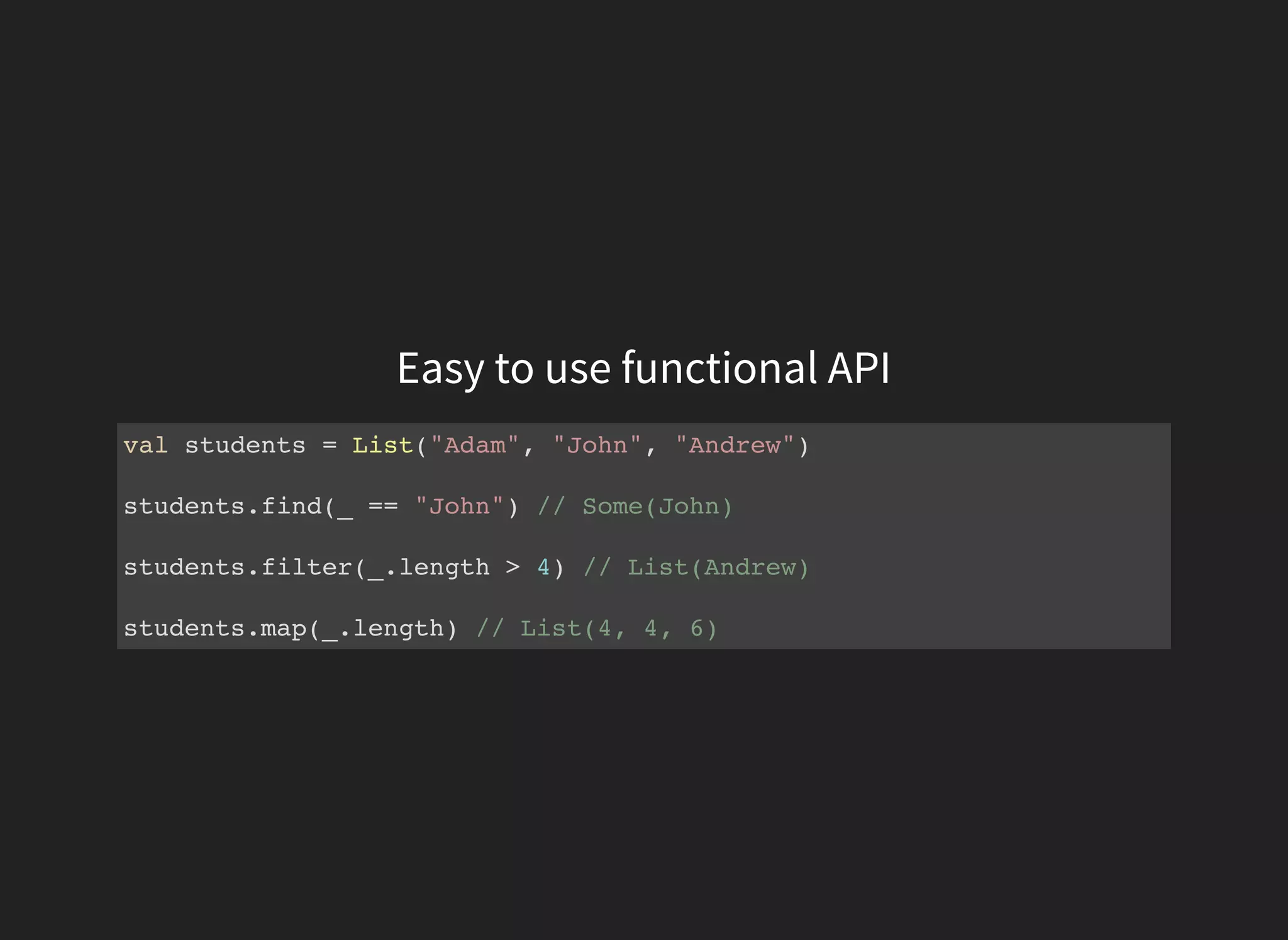
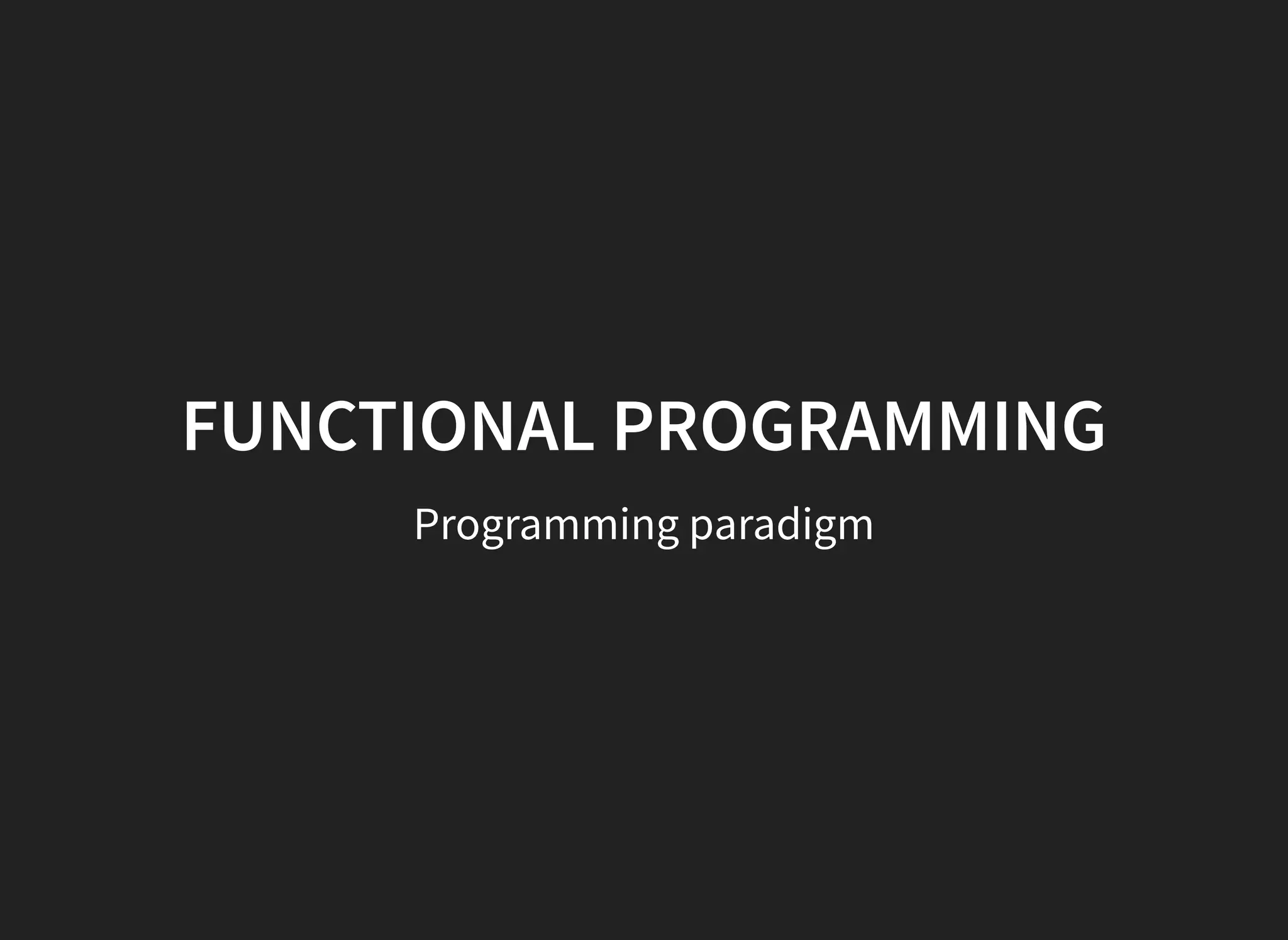
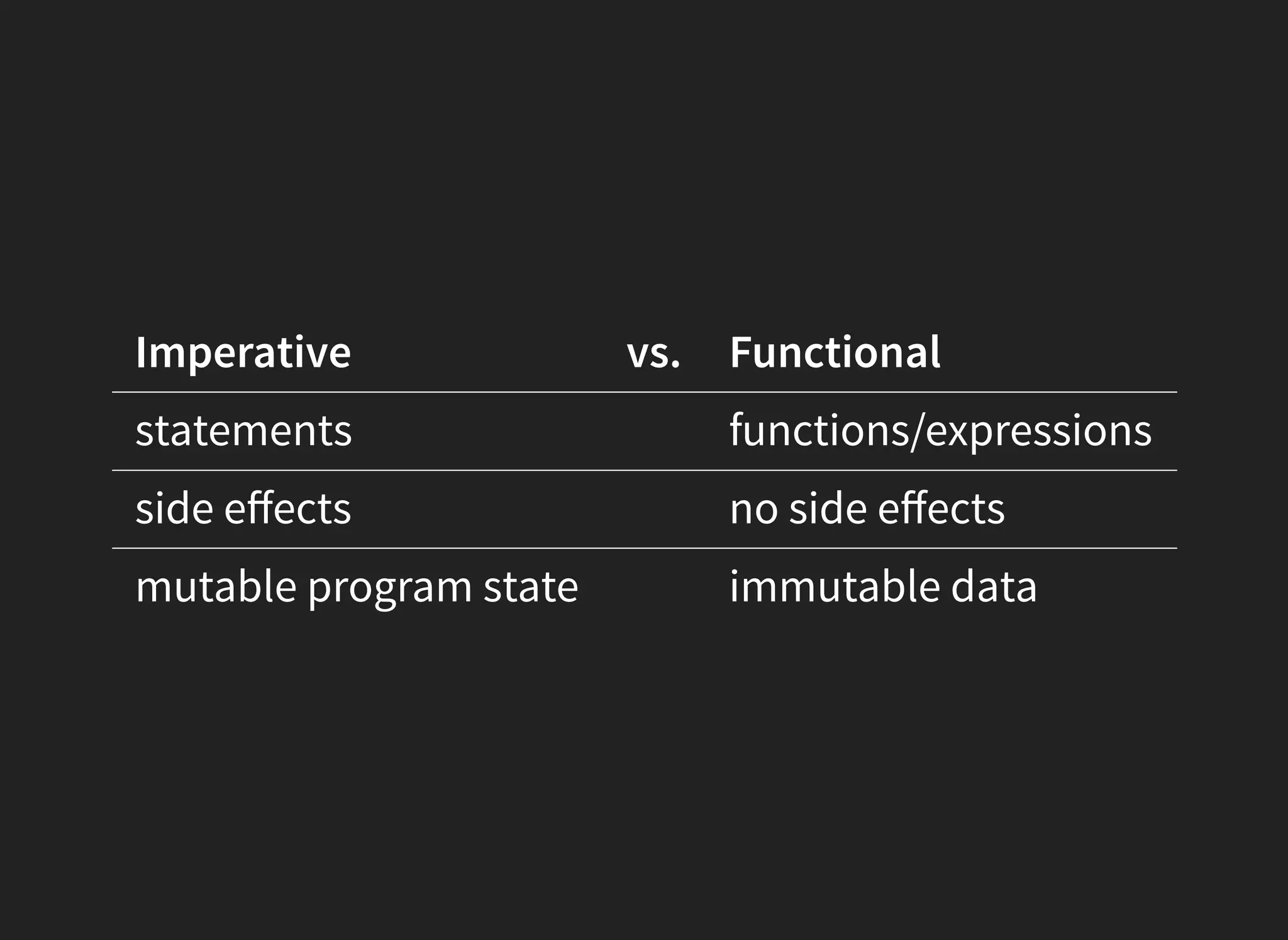
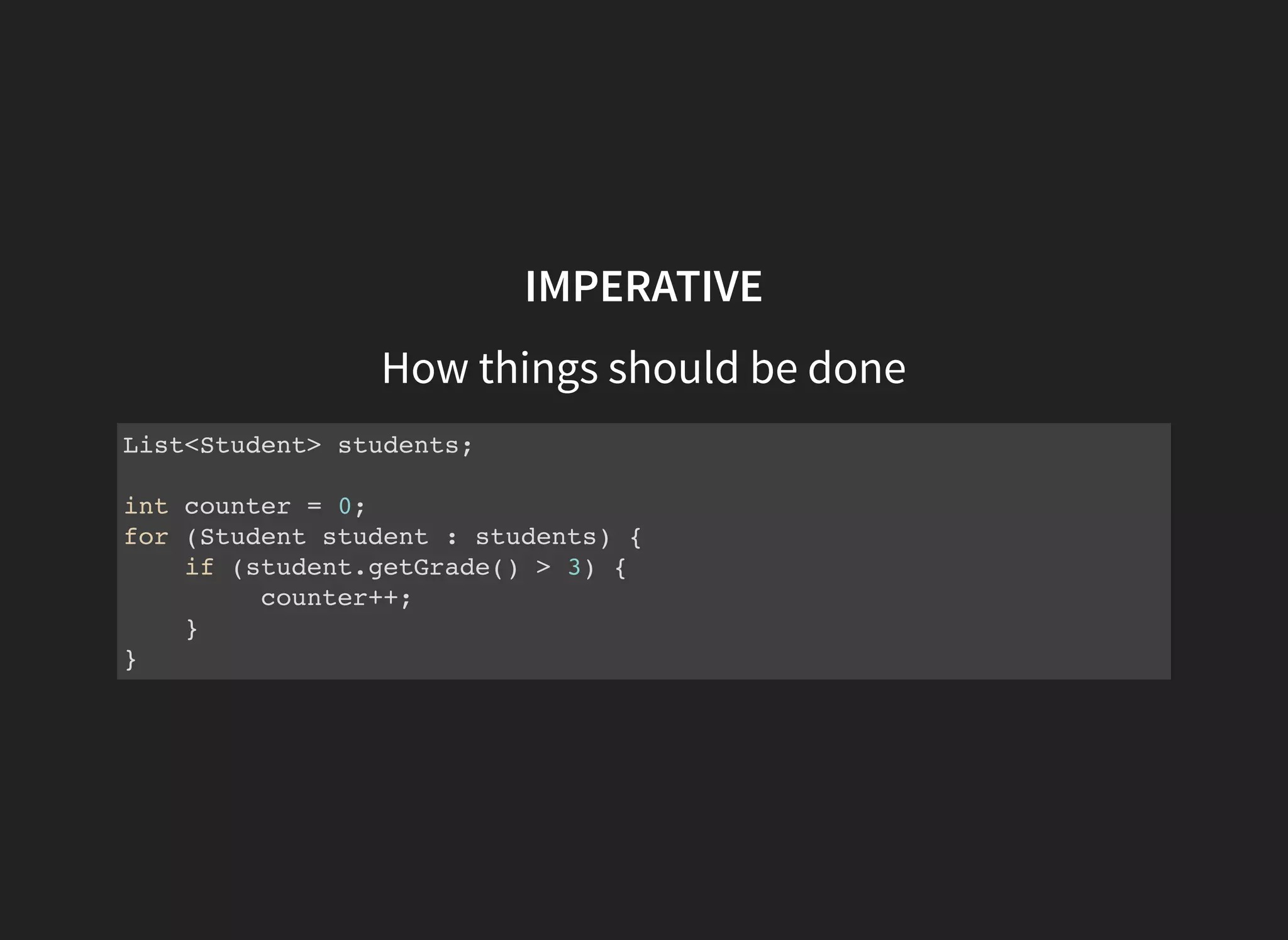
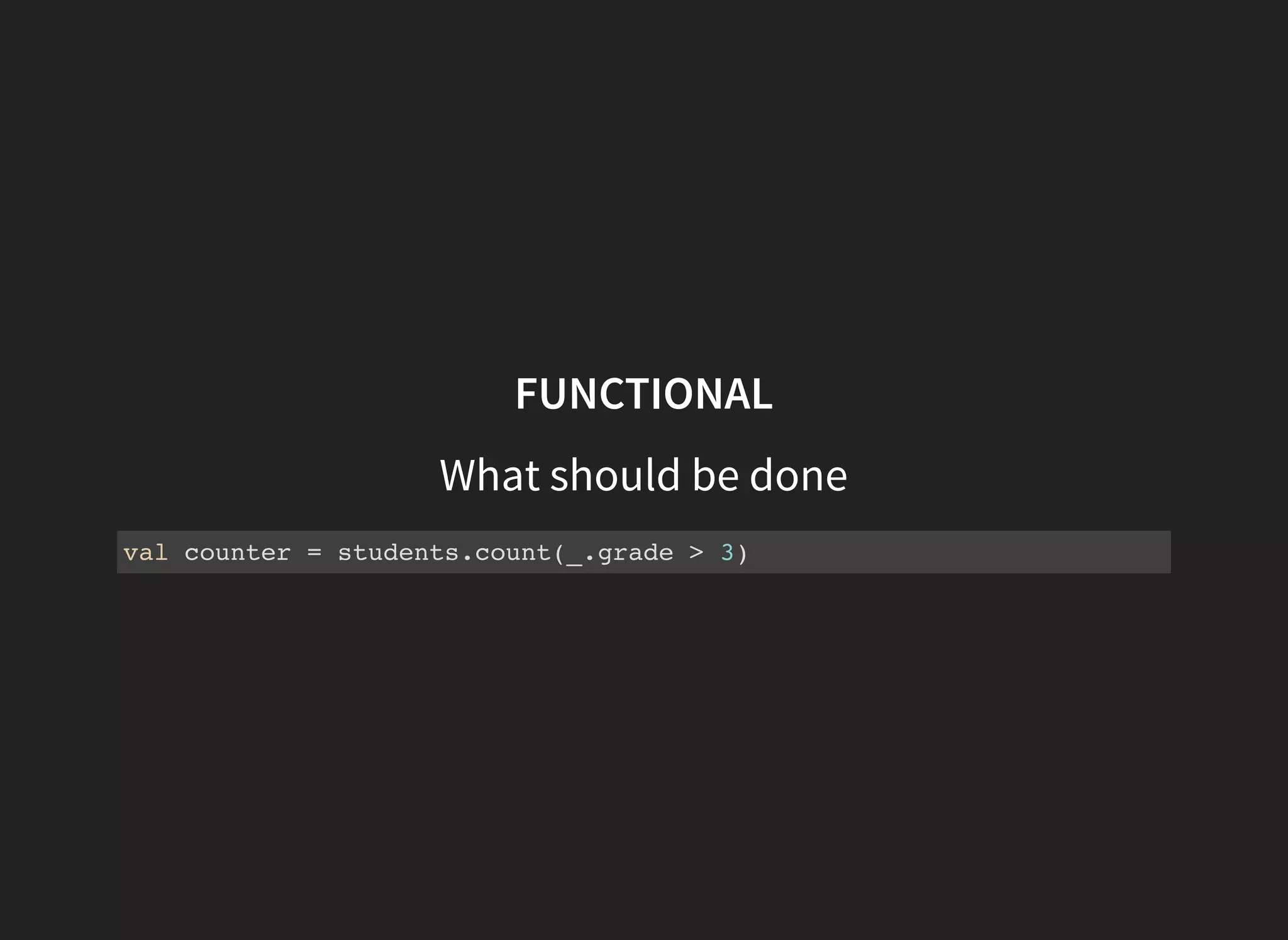
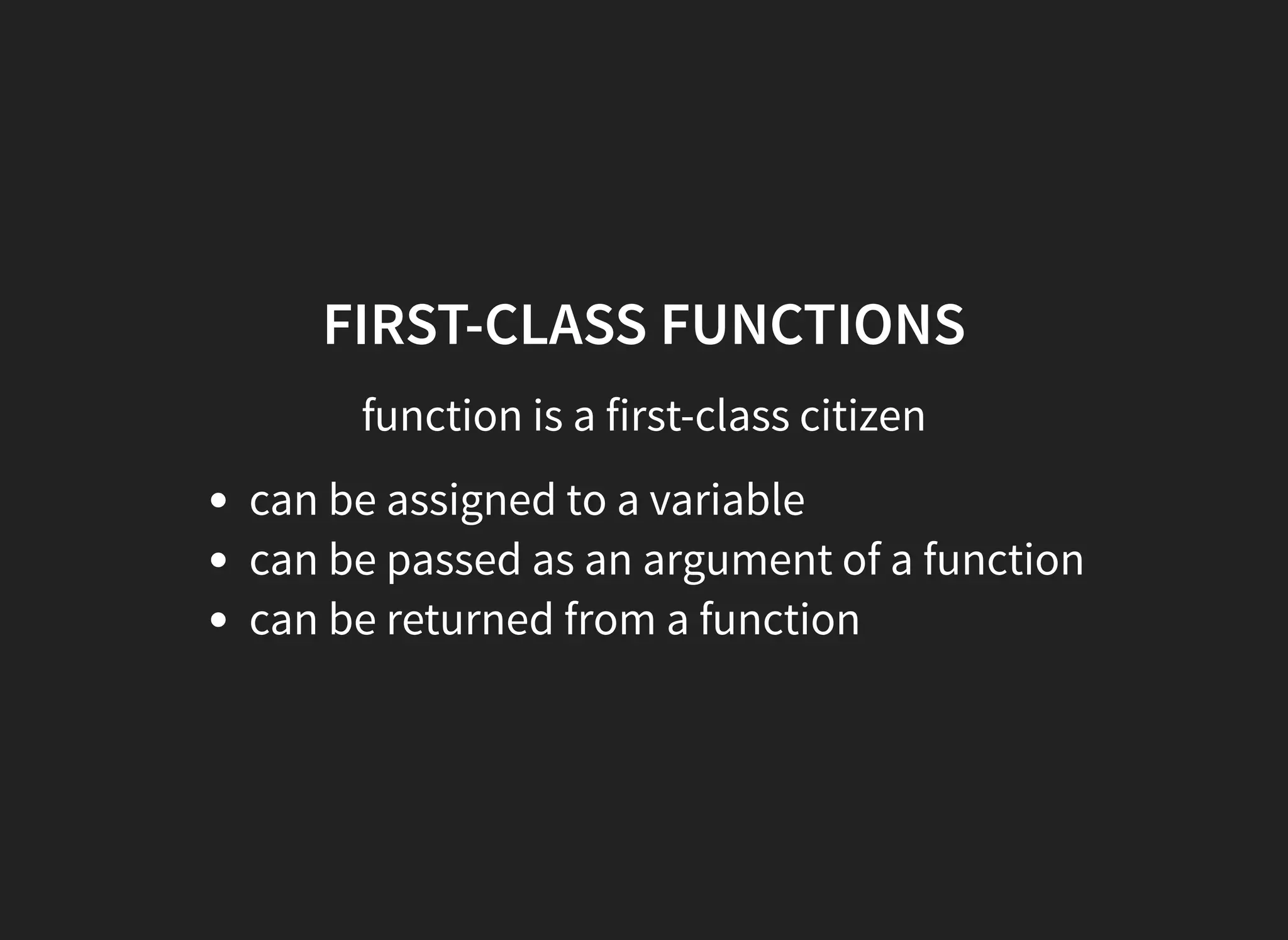
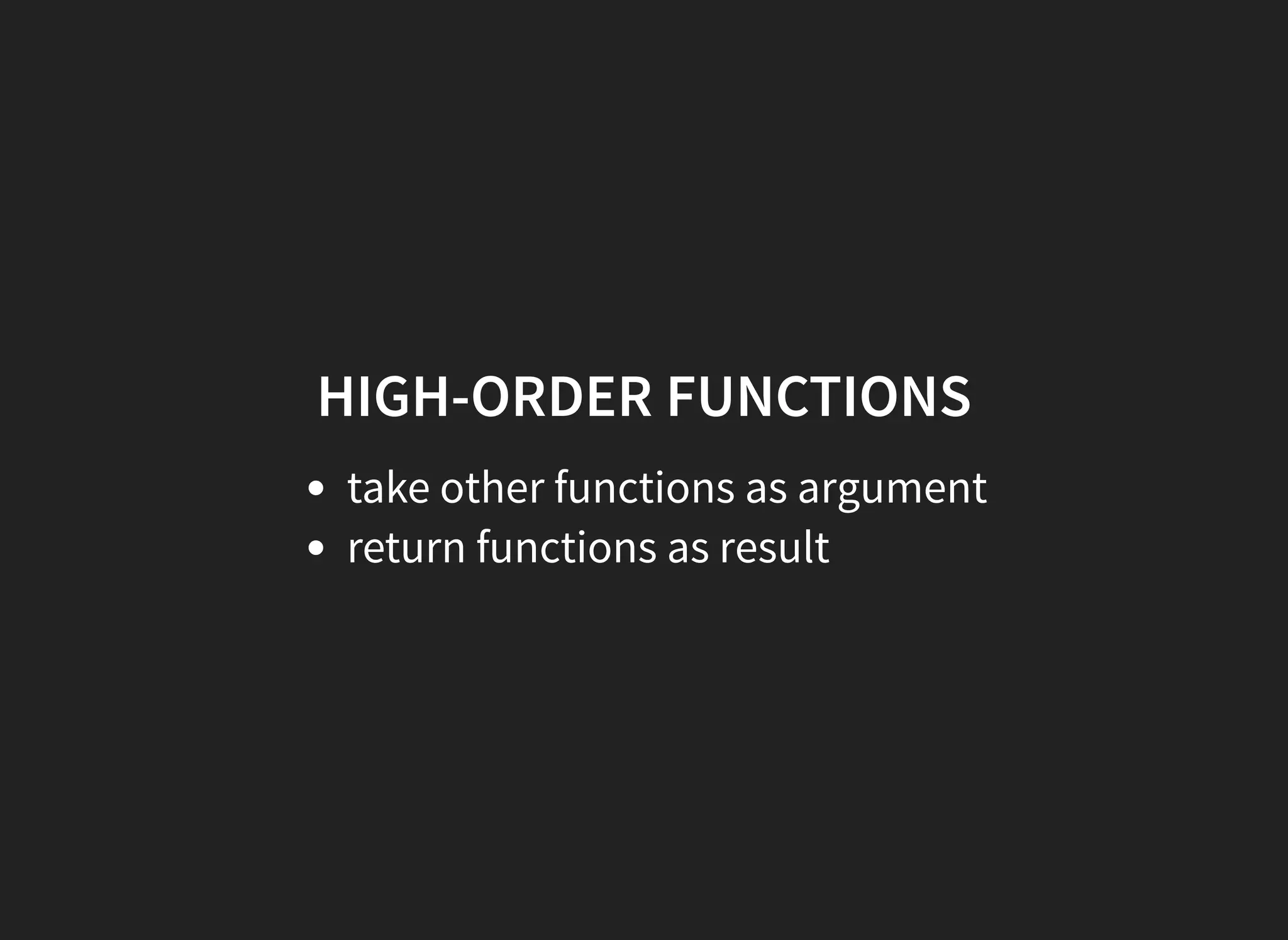
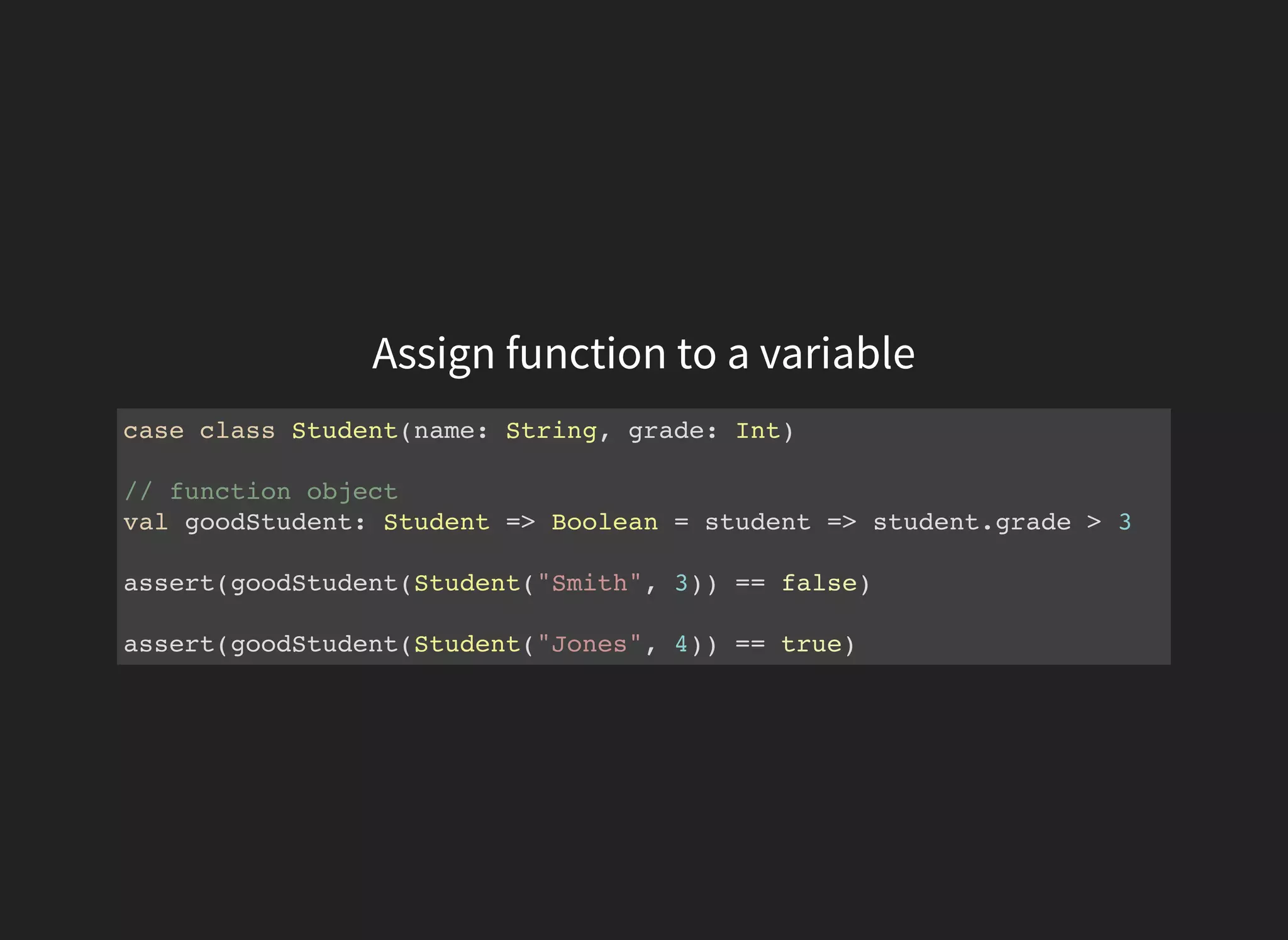
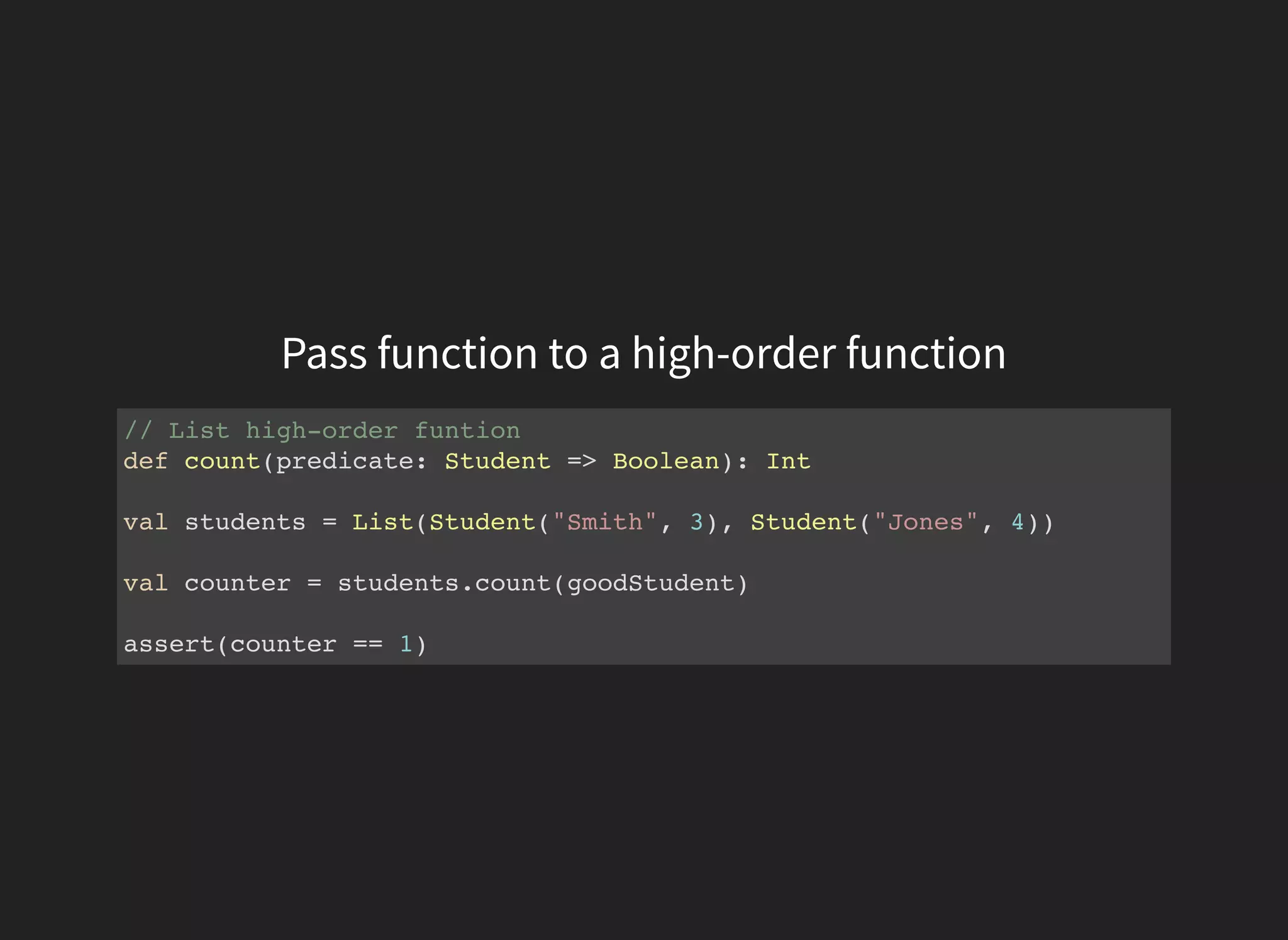
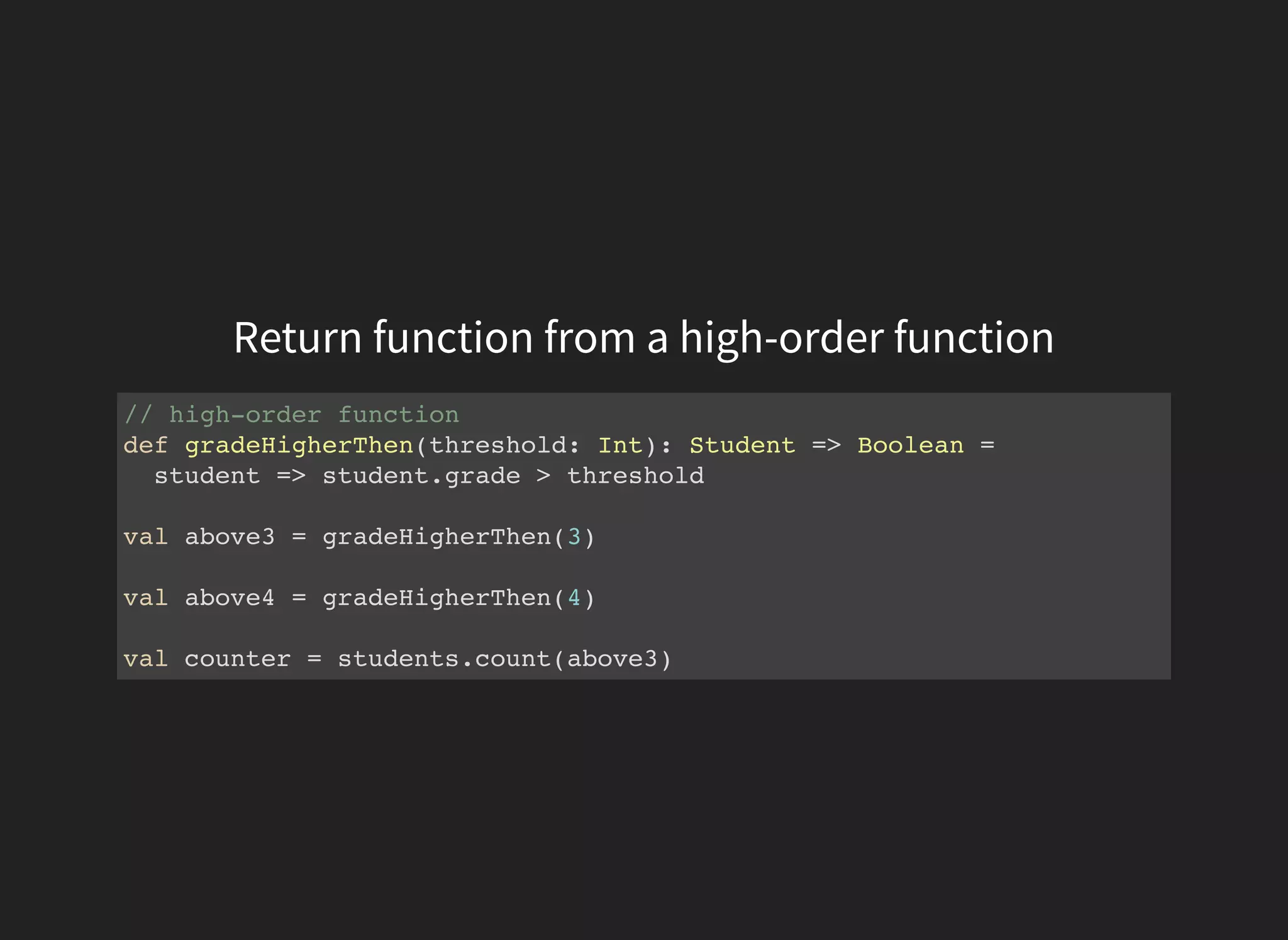

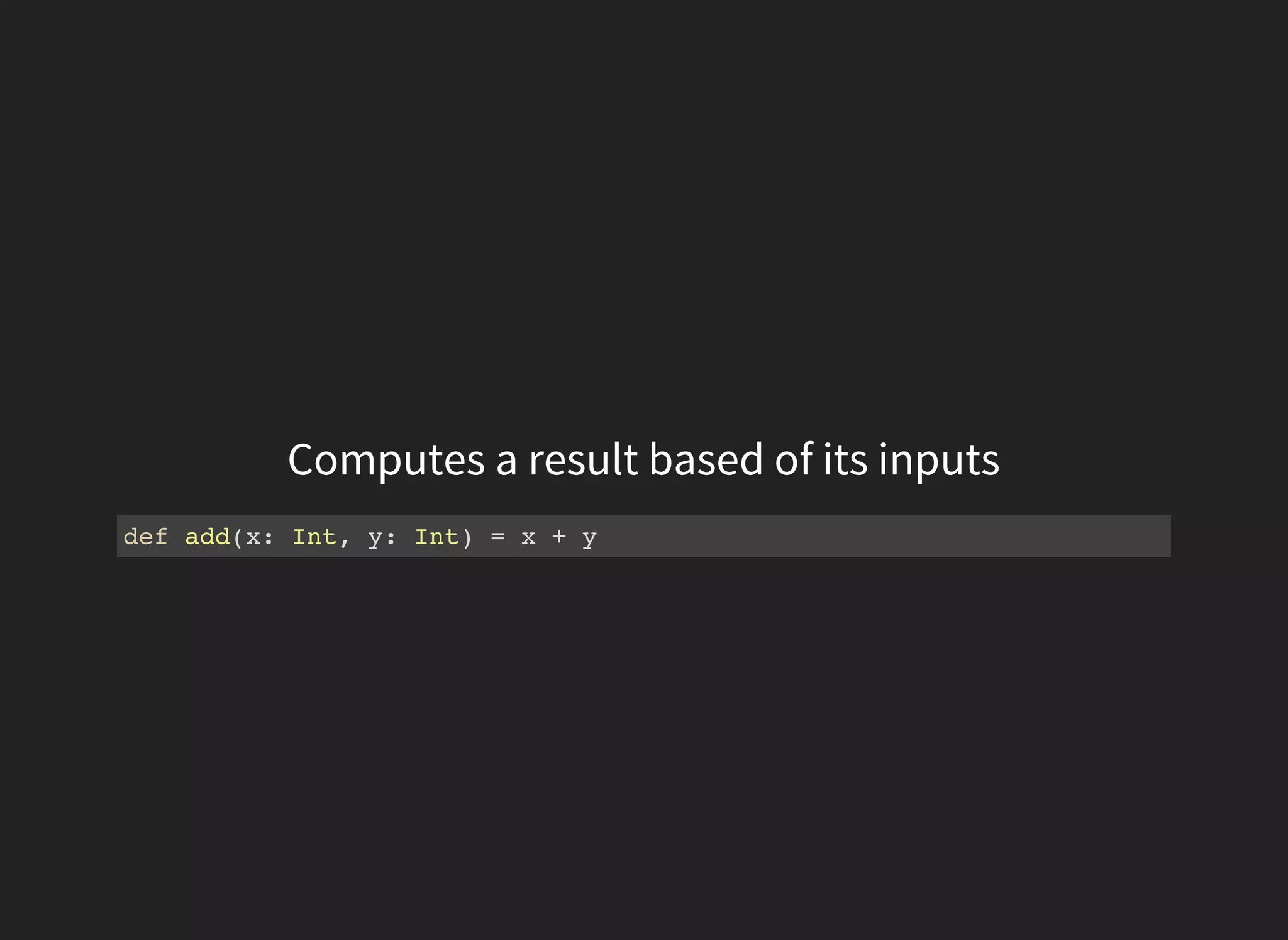
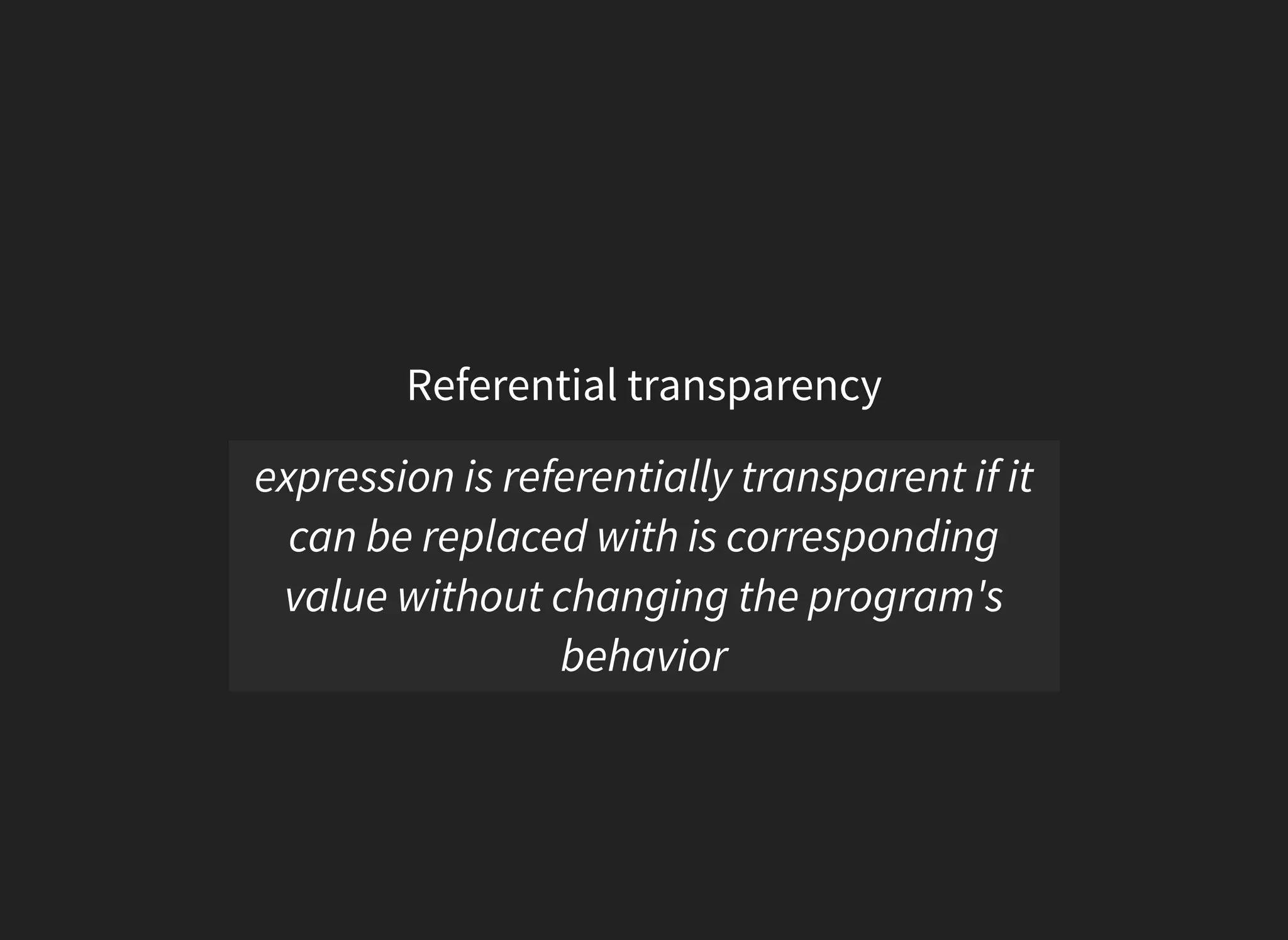
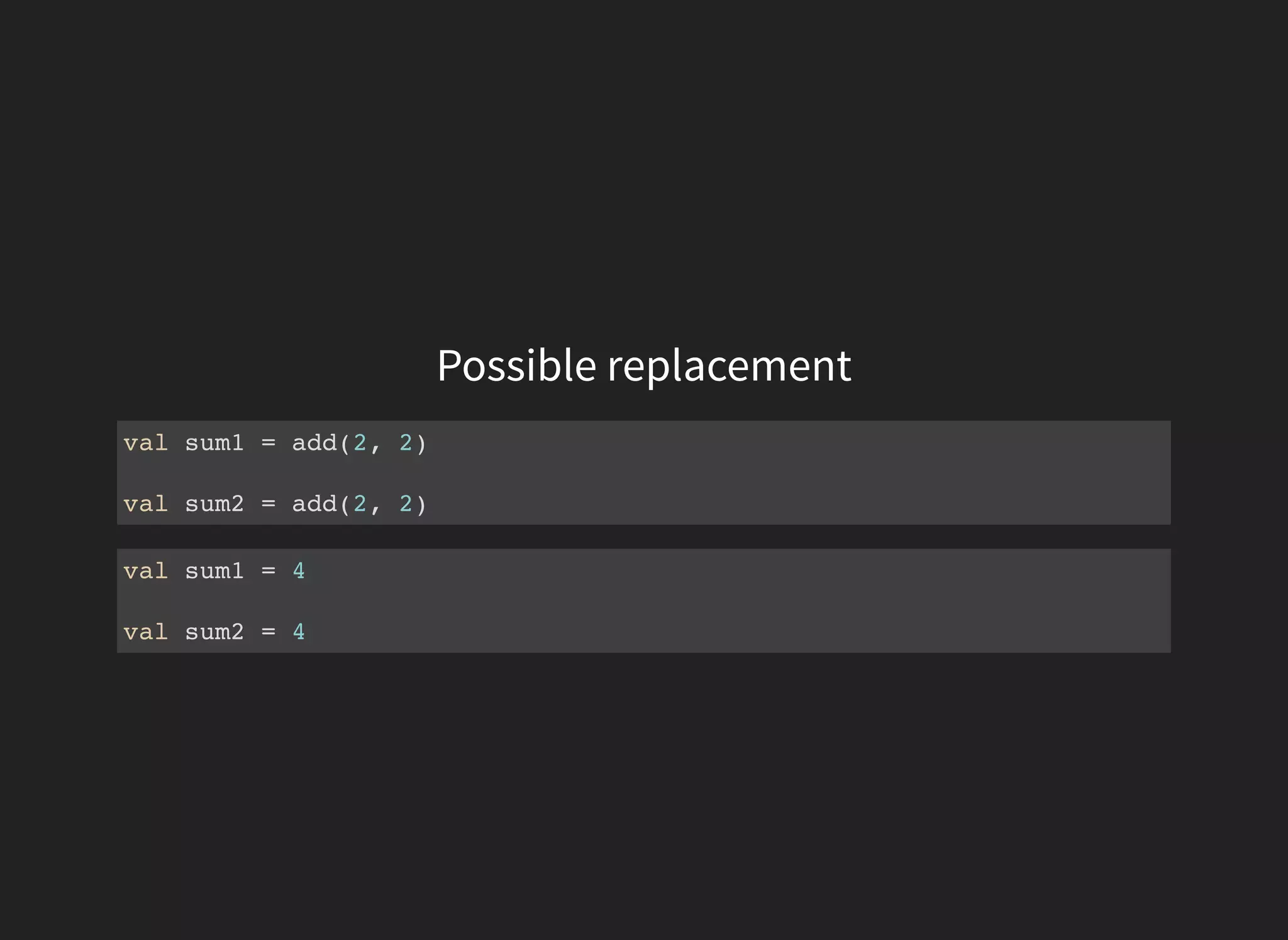
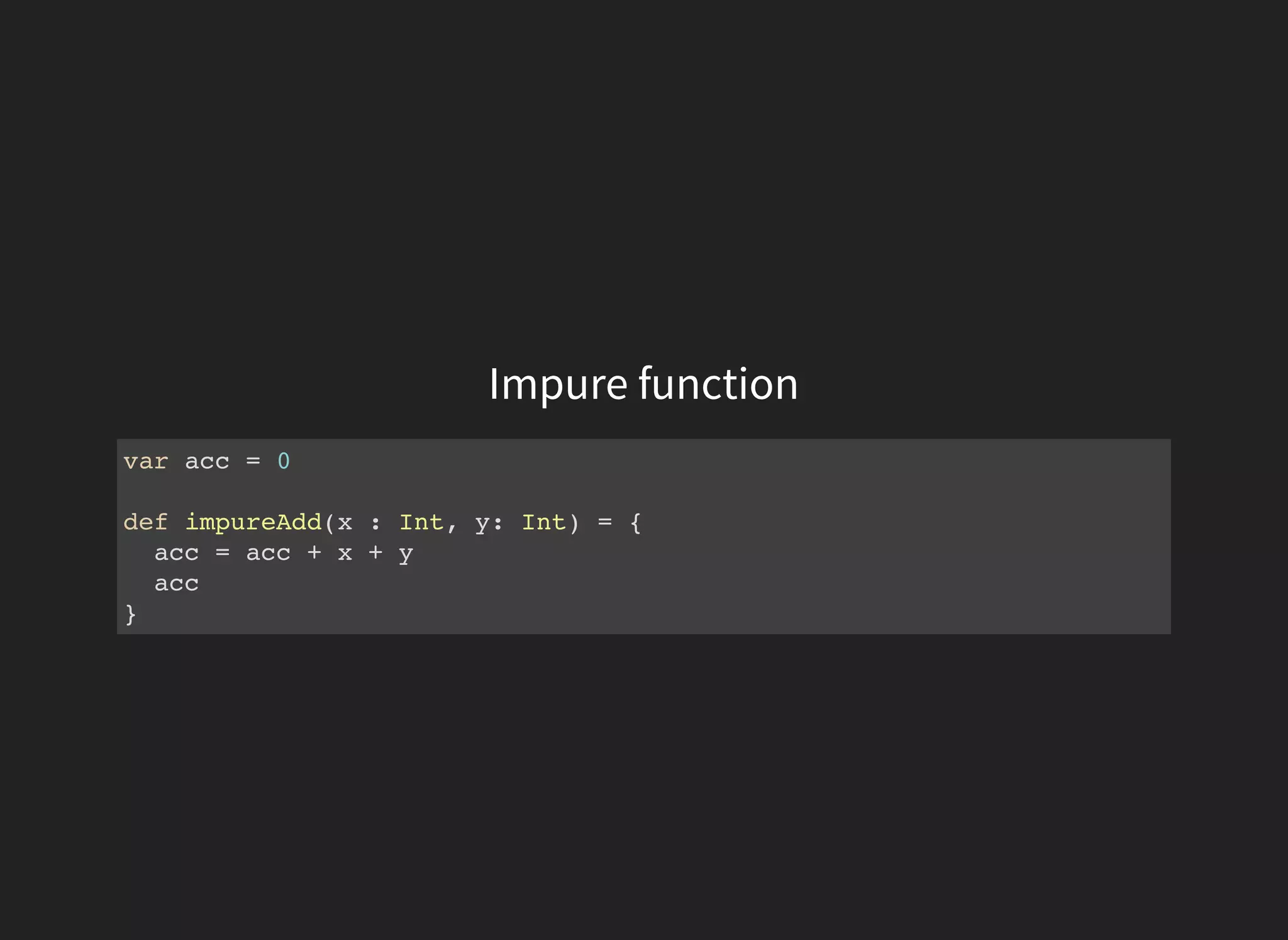
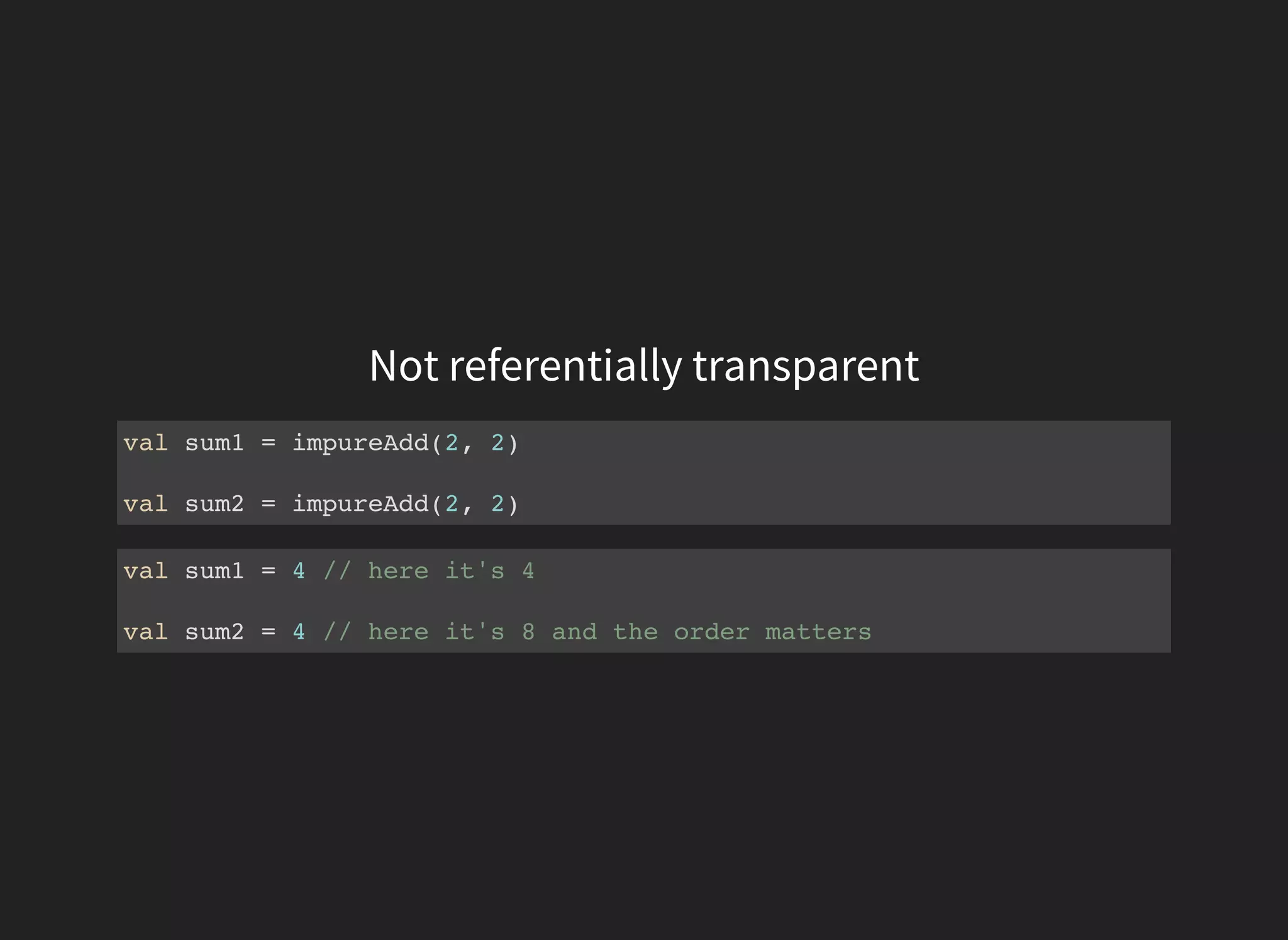
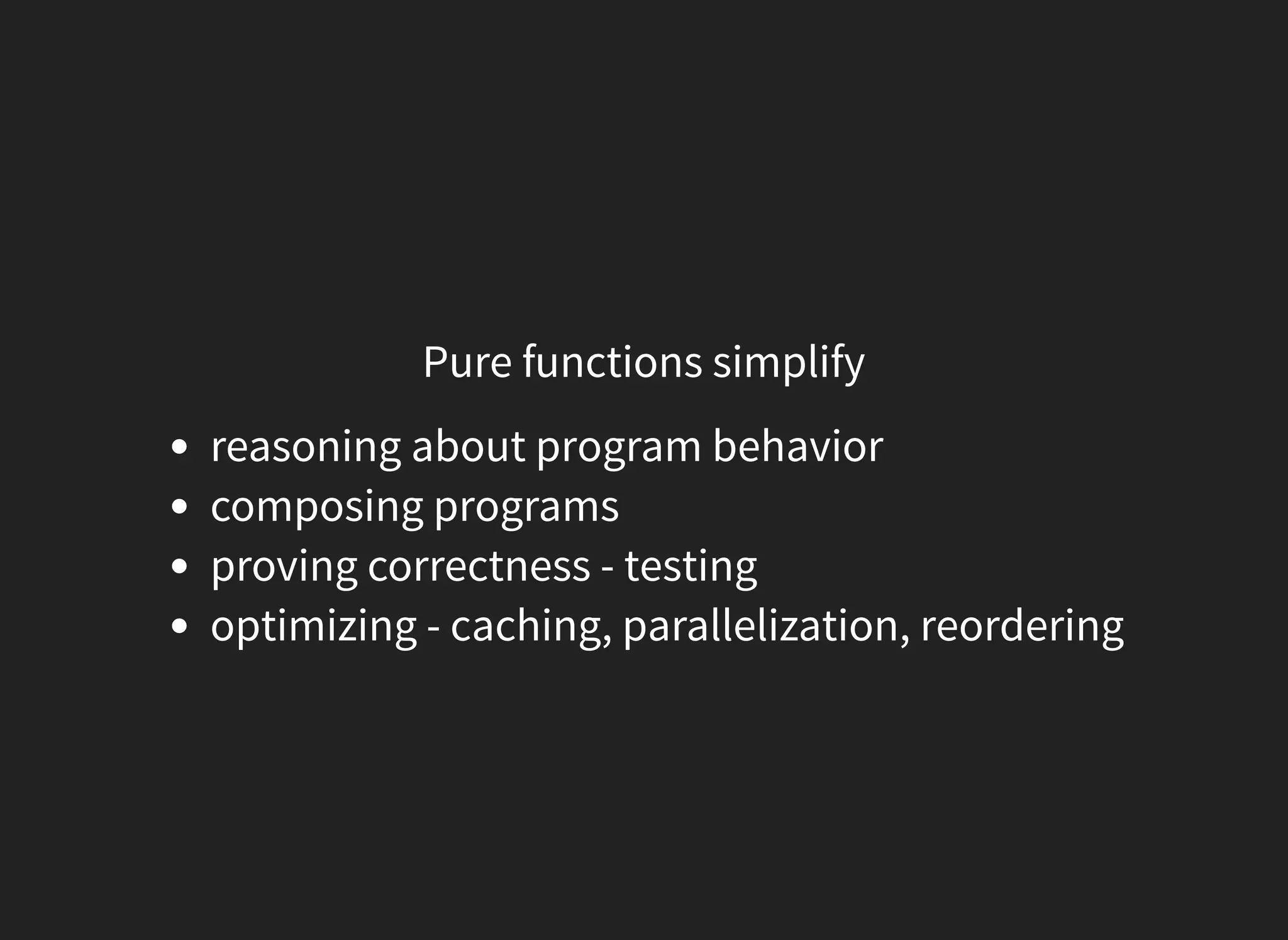
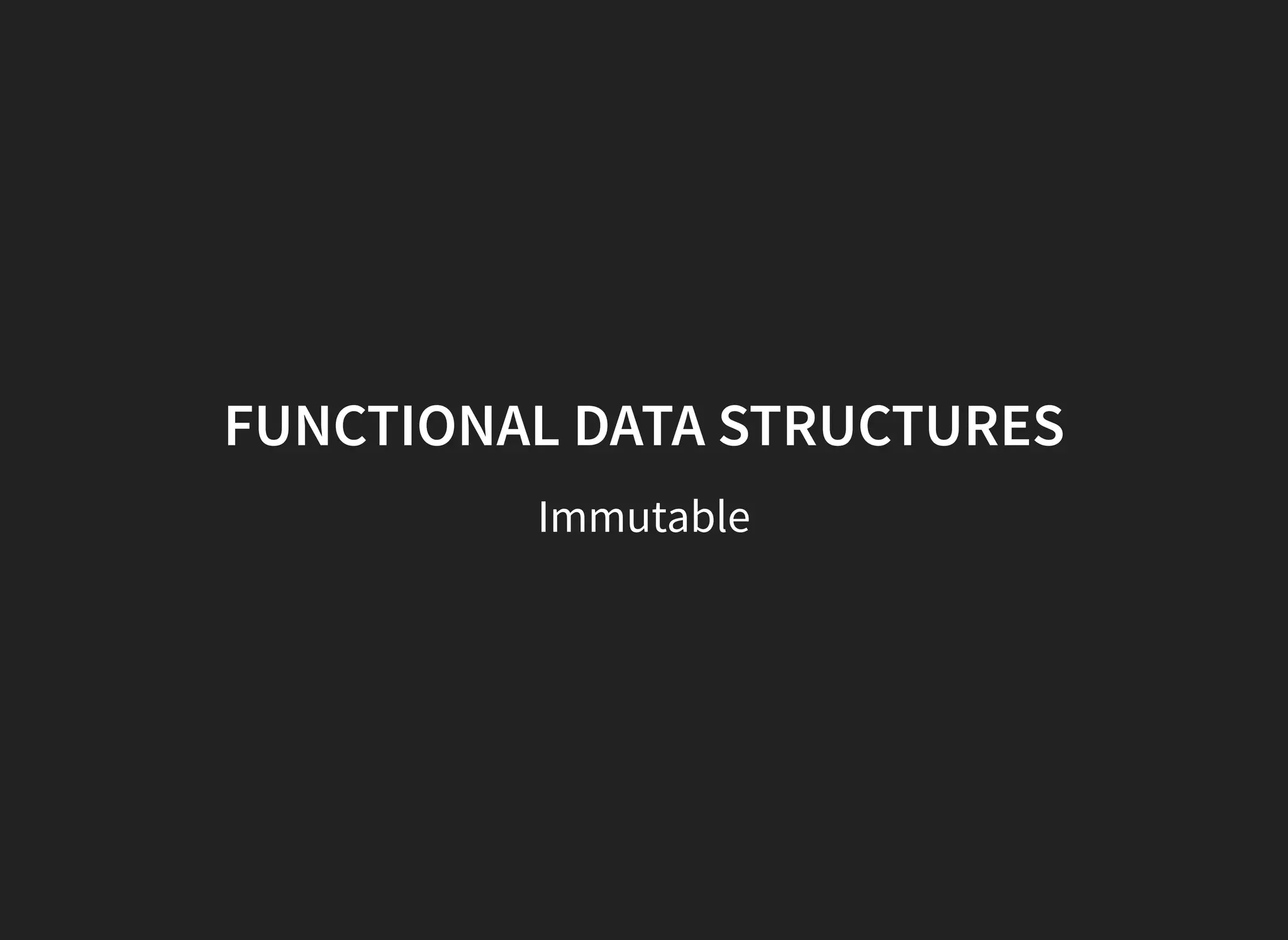
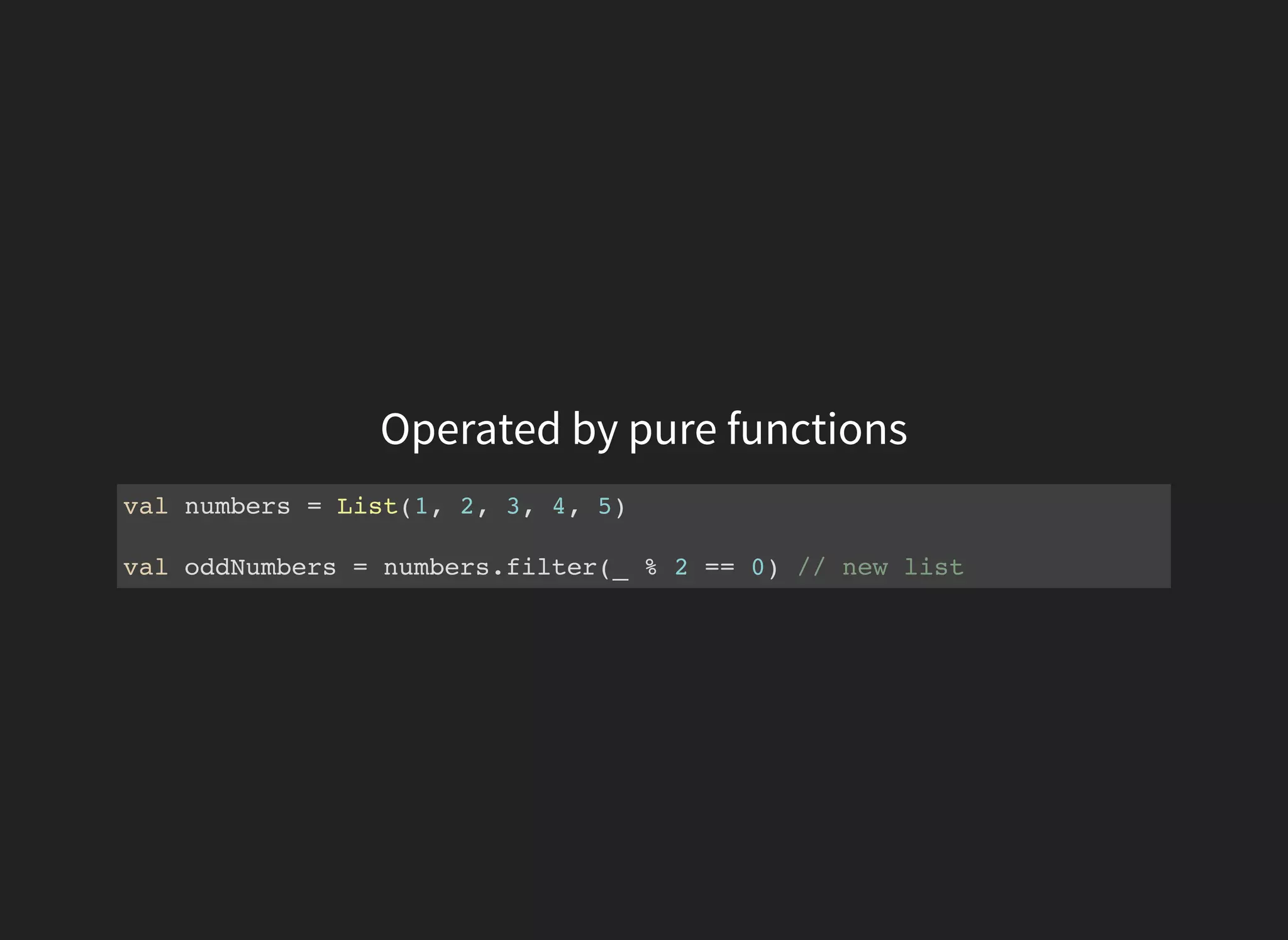
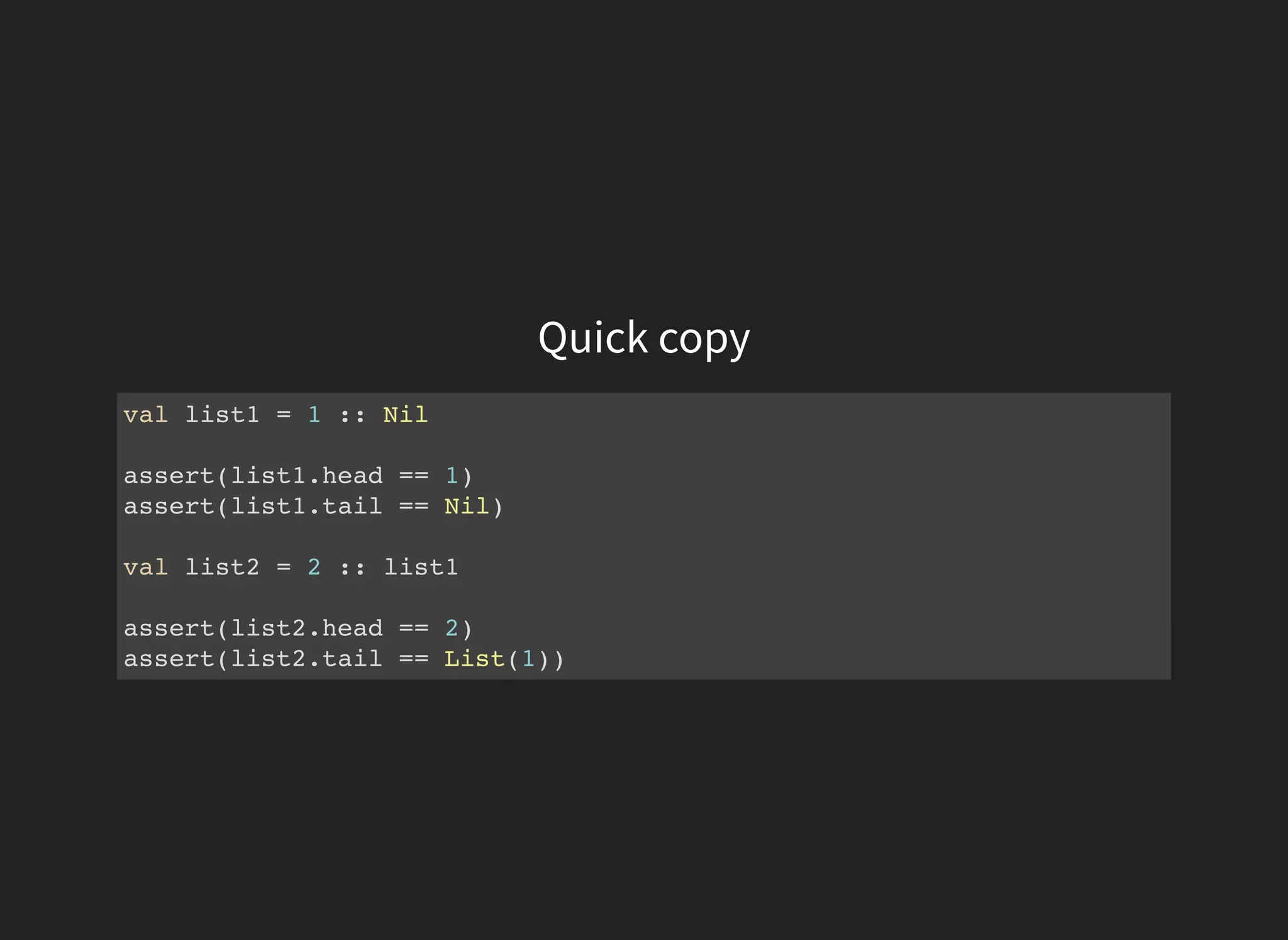
![Thread safety
Immutable data can be safely shared between threads
def changeGrade(student: Student): Future[Student] = Future {
student.copy(grade = 5)
}](https://image.slidesharecdn.com/functionalscala-161103094444/75/Functional-programming-in-Scala-42-2048.jpg)

![OPTIONAL VALUE
Option[+A]](https://image.slidesharecdn.com/functionalscala-161103094444/75/Functional-programming-in-Scala-44-2048.jpg)
![Has two subclasses
val someName: Option[String] = Some("John")
val noneName: Option[String] = None](https://image.slidesharecdn.com/functionalscala-161103094444/75/Functional-programming-in-Scala-45-2048.jpg)
![Optional result of a function
def findUser(email: String): Option[User]
better then
def findUser(email: String): User
val user = findUser("john.smith@company.com")
if (user != null) {
...
}](https://image.slidesharecdn.com/functionalscala-161103094444/75/Functional-programming-in-Scala-46-2048.jpg)
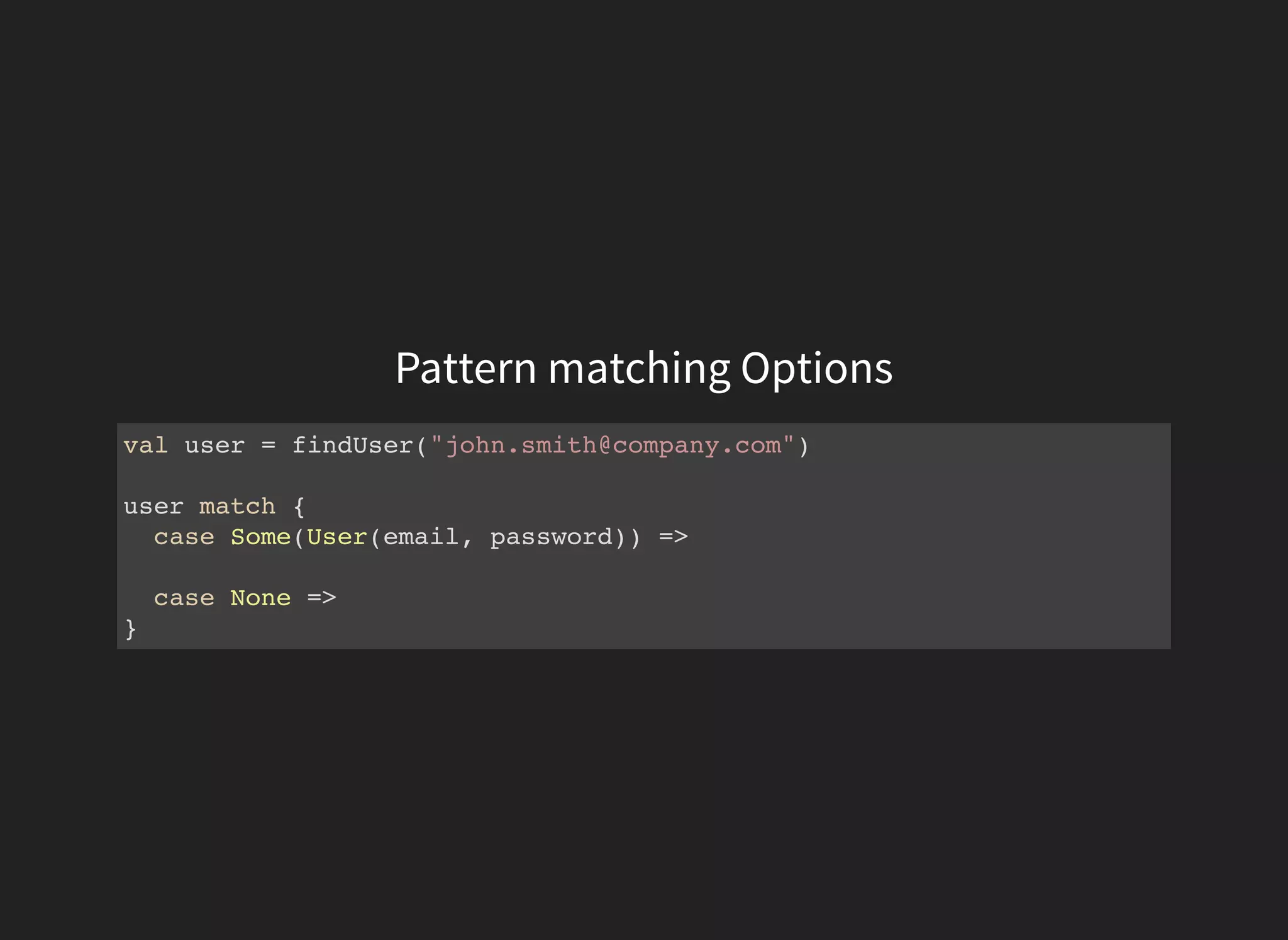
![MONADS
Containers
trait M[T] {
def map(f: T => S): M[S]
def flatMap(f: T => M[S]): M[S]
}](https://image.slidesharecdn.com/functionalscala-161103094444/75/Functional-programming-in-Scala-48-2048.jpg)
![Option is a monad
Option[+A] {
def map[B](f: (A) ⇒ B): Option[B] // only if nonempty
def flatMap[B](f: (A) ⇒ Option[B]): Option[B] // only if nonempty
}](https://image.slidesharecdn.com/functionalscala-161103094444/75/Functional-programming-in-Scala-49-2048.jpg)
![Map Option
val user: Option[User] = findUser("john.smith@company.com")
val password: Option[String] = user.map(u => u.password)](https://image.slidesharecdn.com/functionalscala-161103094444/75/Functional-programming-in-Scala-50-2048.jpg)
![FlatMap Option
val user: Option[User] = findUser("john.smith@company.com")
val password: Option[String] = user.flatMap { u =>
if (u.password.nonEmpty) Some(u.password) else None
}](https://image.slidesharecdn.com/functionalscala-161103094444/75/Functional-programming-in-Scala-51-2048.jpg)
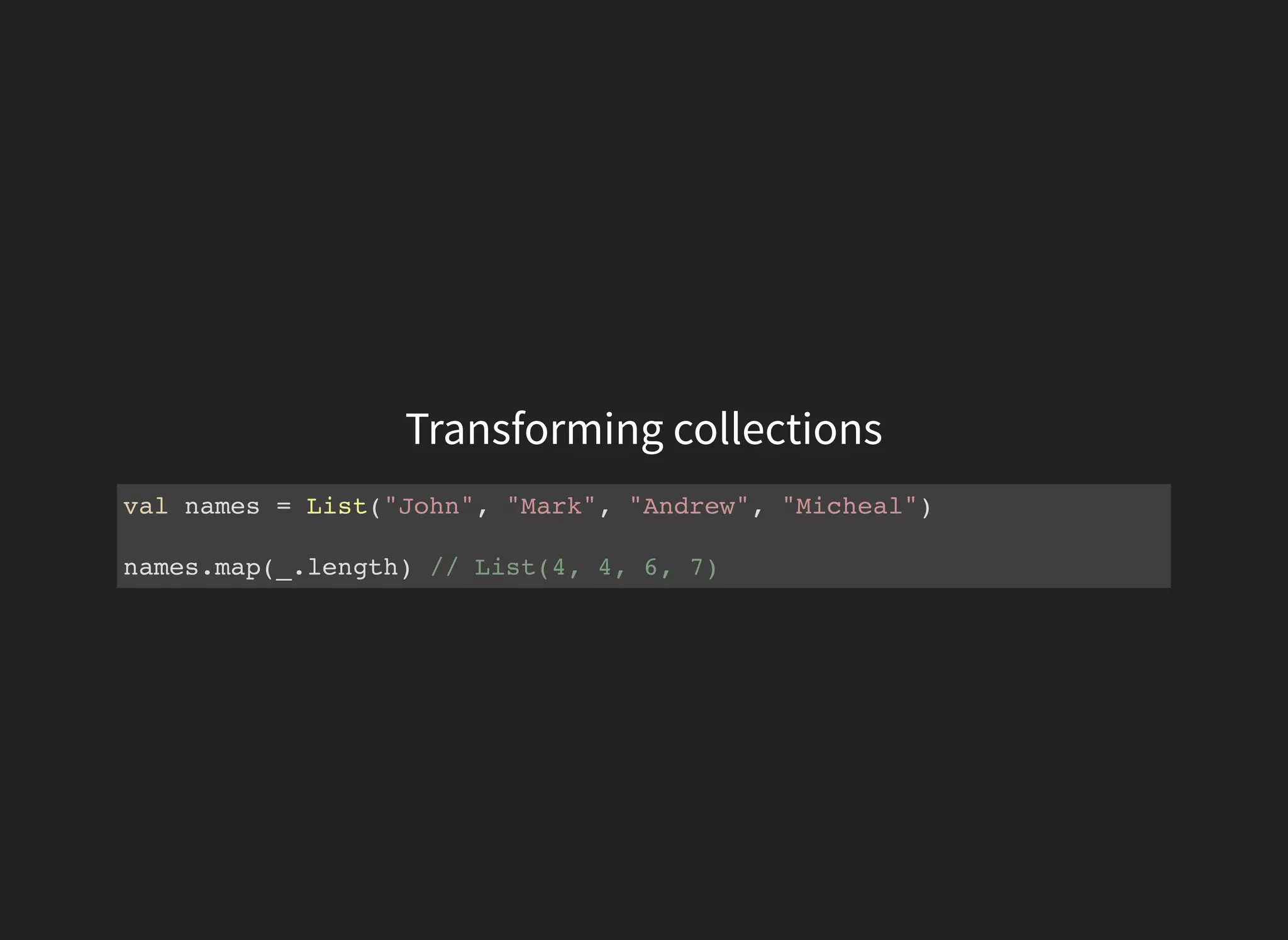

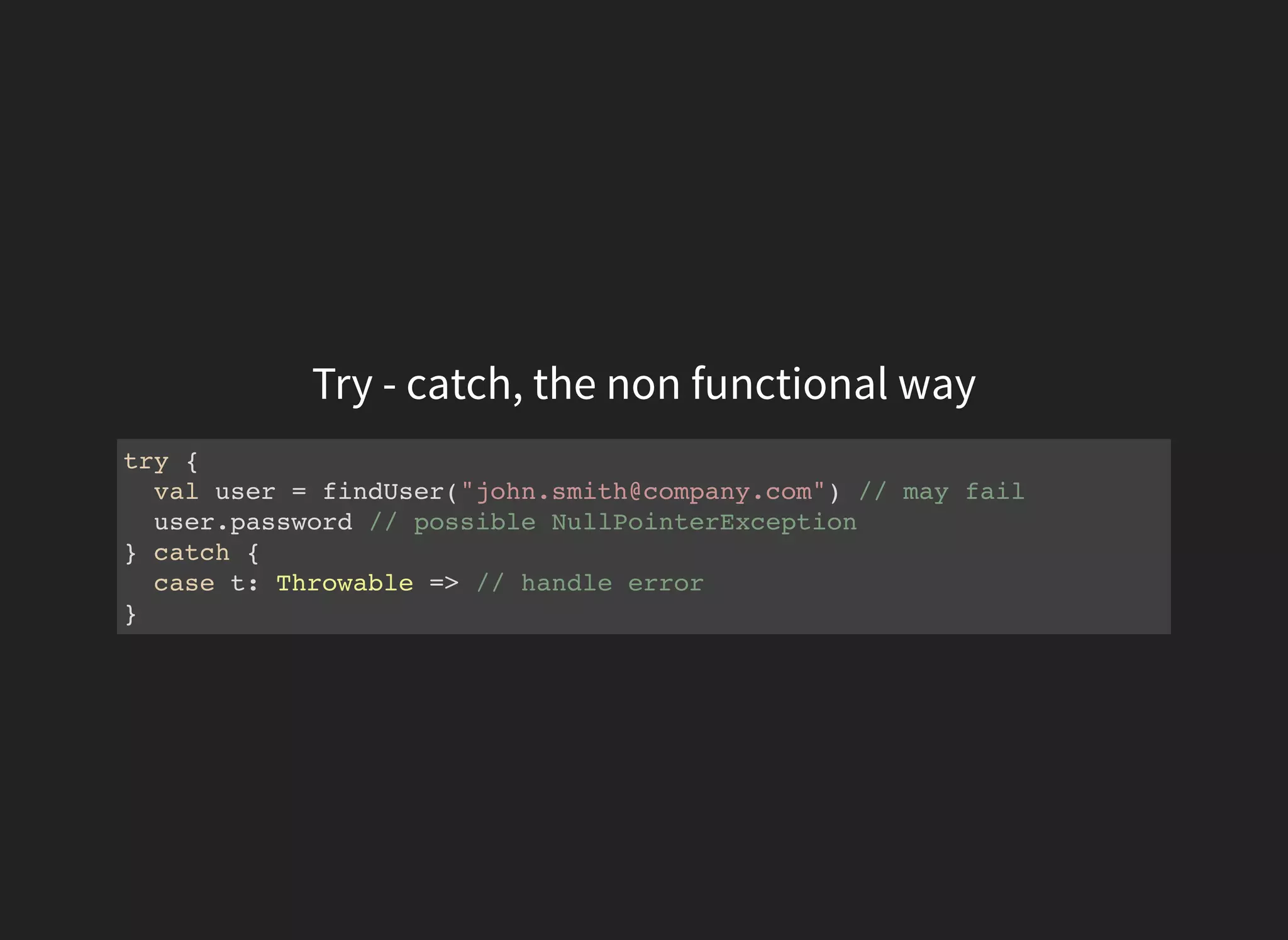
![Try
Try[+T]
def findUser(email: String): Try[User]
findUser("john.smith@company.com") match {
case Success(User(email, password)) =>
case Failure(exception) =>
}](https://image.slidesharecdn.com/functionalscala-161103094444/75/Functional-programming-in-Scala-55-2048.jpg)
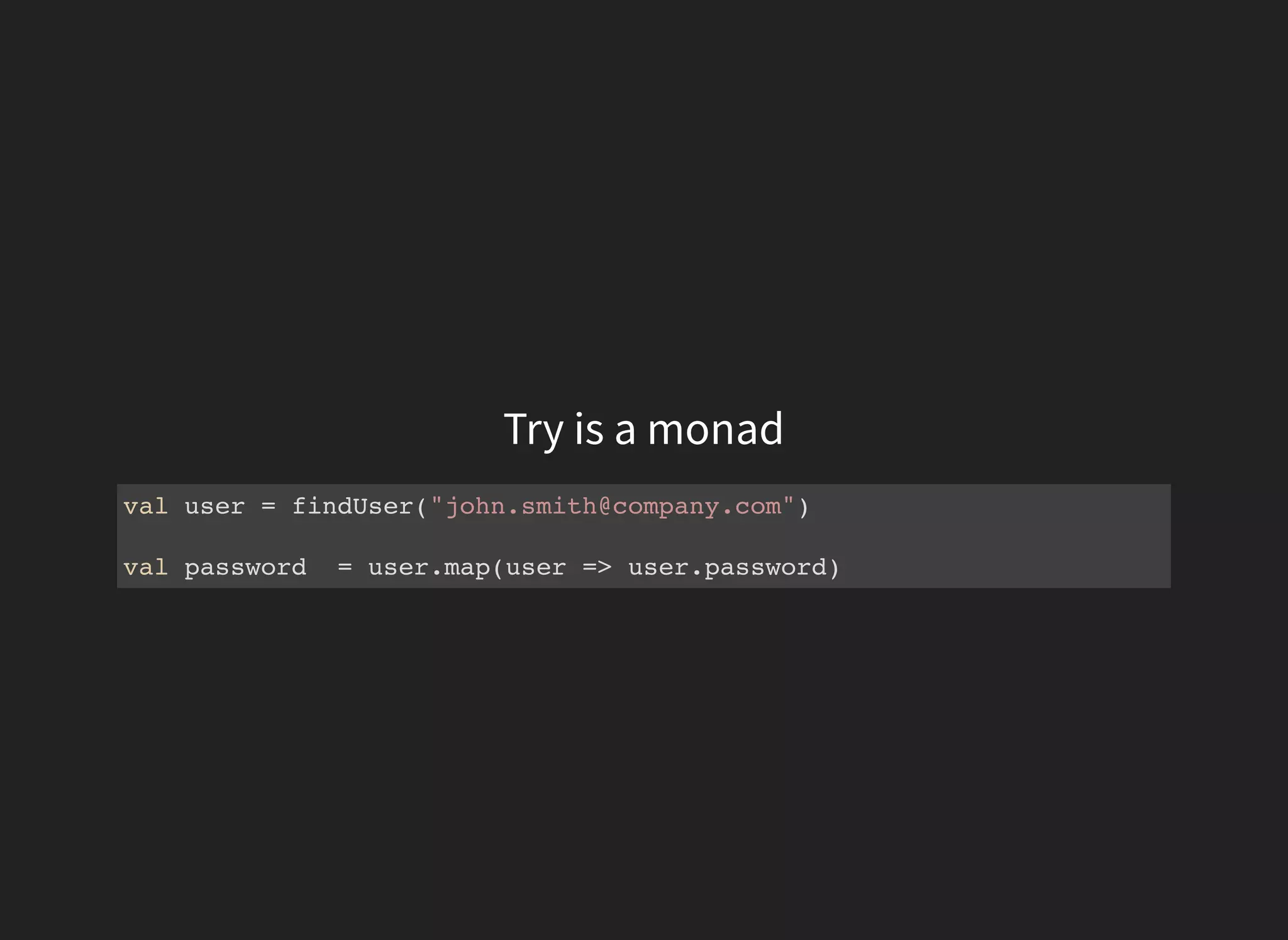
![Either error or correct value
Either[+A, +B]
case class Error(message: String)
def findUser(email: String): Either[Error, User]](https://image.slidesharecdn.com/functionalscala-161103094444/75/Functional-programming-in-Scala-57-2048.jpg)
